2019 is wrapping up, and 2020 is upon us. It seems only appropriate, then, to look back on the last ten years and marvel at all the literary treasures we’ve received.
It’s taken a long time to assemble this list. It hasn’t been easy. Not all of these are books that I loved personally, but they all did something special or different or noteworthy – or all three – that earned them a spot. And most of them – most of them I love very, very much.
It’s been a good decade for SFF. It’s been an even better decade for queer SFF, which, if it’s still not as common as I’d like, has increased and gotten stronger in leaps and bounds. I can’t wait to see how that continues in the next ten years.
I’ve assembled my list in order of publication (dates taken from Goodreads, series placed with publication date of first book) since I really couldn’t even try to put them in order of best-ness, but it should go without saying that it’s incomplete. There are, without doubt, self-published and indie gems I never discovered that would have made this list if I knew about them, and there were books that changed me forever which are not SFF, and so didn’t get a spot here. These are also books that fit my own personal definition of ‘best’; I’m sure there are plenty of people who’ll disagree with some of the books I’ve included or not included. To them I say:

And now, the list!
The Best SFF of the Decade!
Newsflesh series by Mira Grant (aka Seanan McGuire)
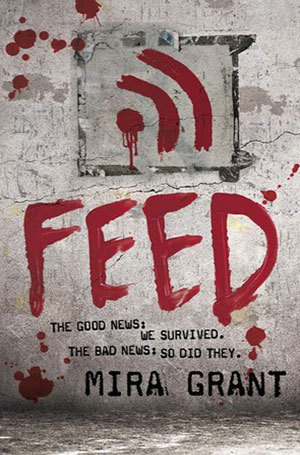

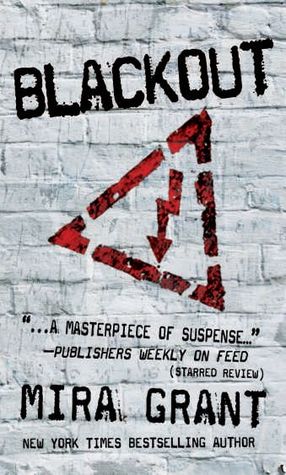
Feed is the first book of the Newsflesh trilogy (although there are many short stories, novellas, and at least one full novel set in the same universe), taking place in a post-zombie apocalypse America. Only it wasn’t quite an apocalypse, because humanity managed to survive okay, even if they lost Alaska to the Dead. Which is not to say that everything is hunky-dory now; everyone is a carrier for The Virus, and anything from going into shock to dying can trigger conversion. Since anyone can have a heart attack anytime and anyplace, this means that most people don’t interact with each other in physical space. Homes have become fortresses, and a huge amount of freedom and autonomy have been given up in exchange for relative safety.
In this world – a few decades on from our own – bloggers, not the traditional news media, are the trusted sources of the news (most people never forgave the normal news for laughing off the start of the zombies as a hoax or joke, while bloggers did their best to share real news and survival tips+tricks). The book follows a team of bloggers when they’re chosen to be part of the press team for a governor running for president, and encounter far too much trouble on the campaign trail.
The worldbuilding is incredible, and the characters are wonderful. This series is definitely one of the definitive works on zombies out there.
Creature Court trilogy by Tansy Rayner Roberts
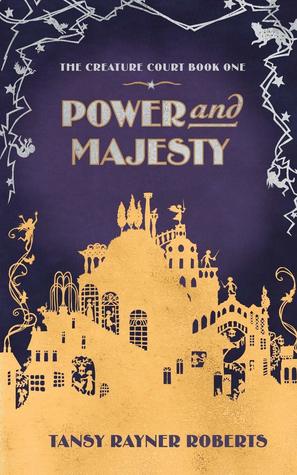


The Creature Court trilogy is a powerfully unique, hedonistic, fierce fantasy series like nothing else I’ve ever read. I wrote about it here when signal-boosting the Kickstarter for the reprint last year, which remains the closest I’ve ever come to capturing my feelings about these books.
If you don’t want to click the link: there are mice fighting the sky and dressmakers becoming kings and honey-cakes save the world; there’s queerness and polyamory and blood and ashes; prophets and shapeshifters and all the different ways women can be strong. Every trope and convention is undone and smashed; everything you think you’ve seen a hundred times before gets completely flipped around. These books never go where you expect them to and the writing is so damn beautiful. If you haven’t read these, you are missing the hell out.
Lightbringer series by Brent Weeks

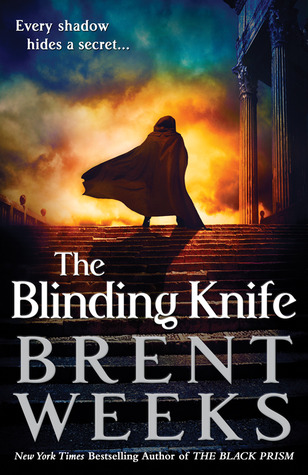

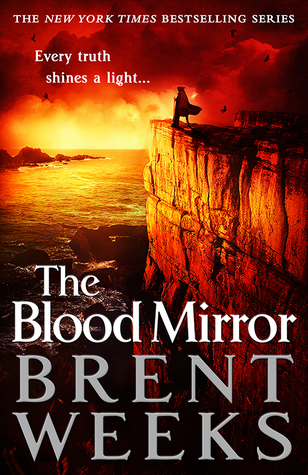
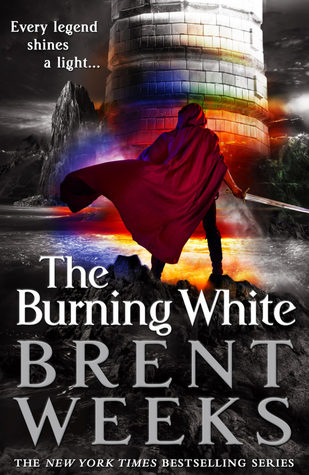
Despite the very generic-fantasy covers, this series is anything but conventional. Weeks has created a world where magic is drawn from colours, which drafters – mages – can manifest into solid forms; each colour has unique properties and is tied to specific emotions. But despite the best efforts of the Chromeria, the governing body of all drafters and thus the Seven Satrapies that depend on them, drafters don’t live long – the more a drafter drafts, the faster they ‘break the halo’, going mad and turning into deadly and almost unstoppable monsters. And atop this system stands Gavin Guile, the Prism, chosen by Orholam to be His representative on earth.
The problem? As far as Gavin can tell, no one upstairs is listening.
Weeks brings the no-holds-barred, no-one-is-safe adrenaline of his Night Angel series to an archipelago where white skin is an impairment, religions turn around light and colours, and colour itself is magic. Brilliant characters dazzle with their realism and casual diversity, and the story itself is a puzzle box of layers and hidden plots, twists and turns that come with jaw-dropping revelations and edge-of-your-seat high stakes – which each book only raises higher; from saving a city, to a satrapy, to the world – and maybe other worlds beyond it. The worldbuilding is truly breathtaking, especially the magic system, which is beyond original. I can’t recommend these books highly enough and they are definitely some of the decade’s best.
Books of the Raksura series by Martha Wells

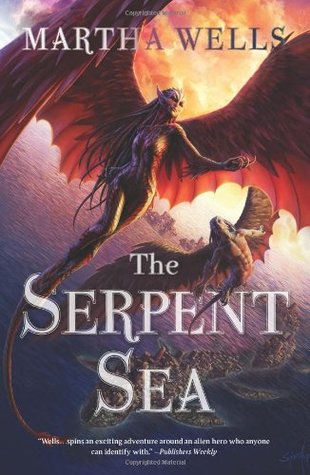
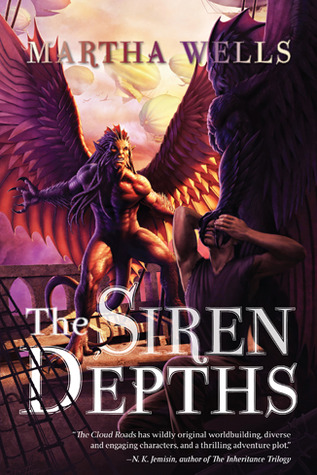
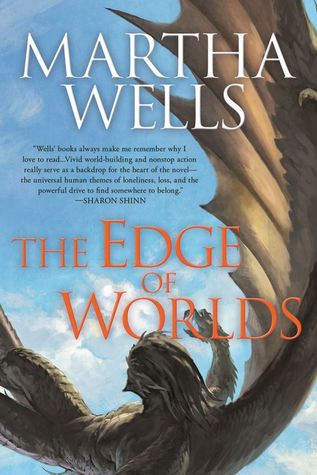
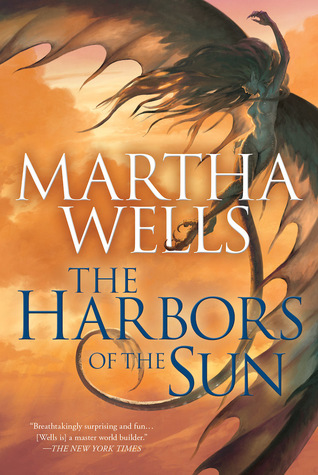
With this series, Martha Wells creates a world where humans don’t exist – but hundreds if not thousands of other sapient species do. The books follow the Raksura, humanoid, draconic shapeshifters whose matriarchal, polyamorous social structure was partly inspired by bees. If that’s not enough to sell you then I really don’t know what is. This series is a genuine stand-out for going where few spec-fic stories will, embracing the truly alien without flinching while simultaneously taking readers on adventures that won’t be quickly forgotten, with characters who’ll steal your heart away when you’re not looking.
Touchstone series by Andrea K. Höst
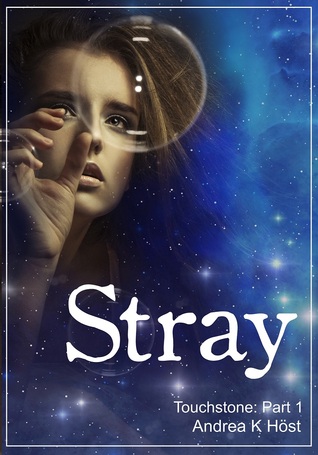
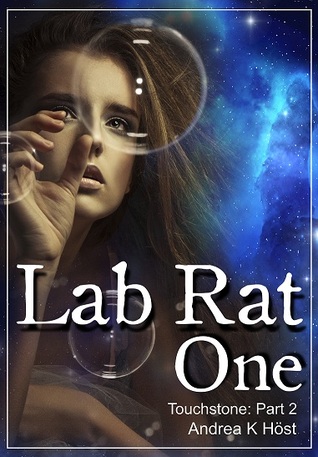
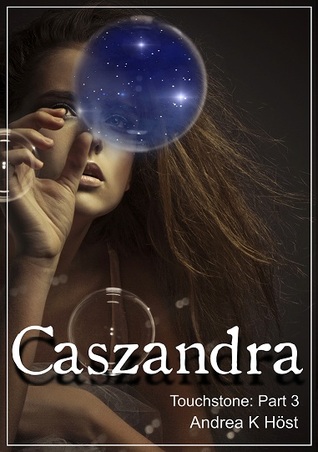

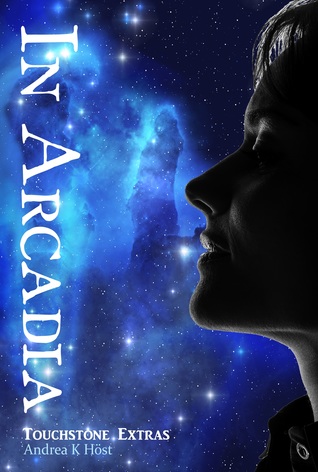
The first self-published entry on this list, the Touchstone series – really a trilogy with some deliciously indulgent extra novels – shouldn’t work, but absolutely does. Told in diary format (I know, I know, but seriously, this once? It really works) it’s the story of Australian student Cassandra who stumbles through an invisible portal on her way back from school, and ends up stranded on an uninhabited, alien world. Thankfully she’s rescued before it’s too late – but the world her rescuers bring her to is a far stranger one. It’s a beautiful, wildly original cross between science fiction and fantasy, dealing with themes like government surveillance and immigration and publicity while never skimping on an incredible story that covers multiple worlds and the fate of them all. This series is one of my personal favourites, but it’s also one I genuinely believe more people need to read.
The Dagger and the Coin series by Daniel Abraham
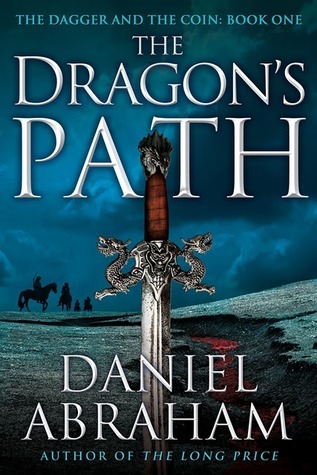

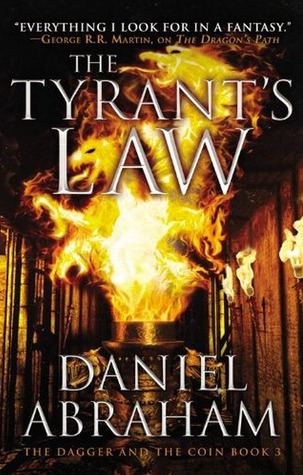
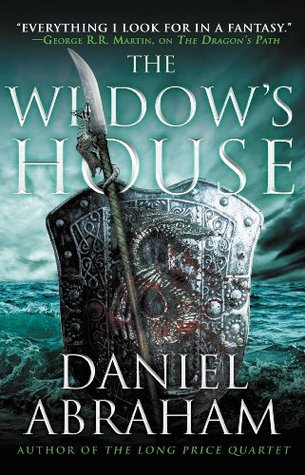
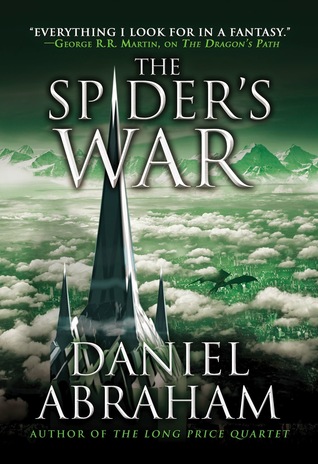
Daniel Abraham’s Long Price quartet was one of the treasures of the previous decade, and he’s more than made his mark on this one with the Dagger and Coin series. Where Long Price was built around an extremely unique culture and magic system, the Dagger and Coin looks, at first glance, like much more traditional fantasy: it’s a Medieval-esque setting in a secondary fantasy world, with kings and lords and noble ladies who are expected to keep to the background. But this is Abraham, and rather than playing along to the expected patterns, he subverts every last one of them, building something incredibly original out of familiar tropes. This is a world where humans – all eight kinds of them – were created by dragons millennia ago, and while the dragons may be gone, not all of their works are gone with them. It’s a series where banking saves the world and patriotism and fanaticism are peeled apart and dissected; a wickedly feminist story where the power women wield might be subtler than men’s, but no less influential; a series where the worst villain of all is a Nice Guy TM rather than the supernatural evil everyone wants to blame. Abrahams examines the difference between truth and belief in a time when it’s a lesson we all need to hear, without ever sacrificing an incredibly intricate, brilliant story where the worst monsters are the ones we allow ourselves to become. Absolutely vital reading.
Triptych by JM Frey
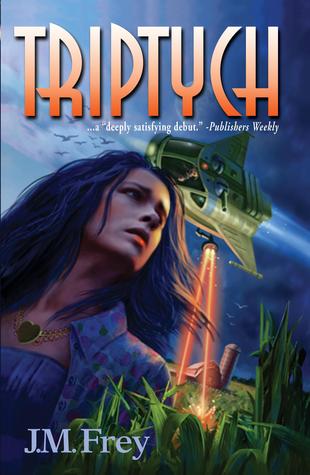
Aliens come to Earth – but not to invade; they’re refugees, their own planet gone, and most of their species with it. The survivors are slowly integrated among humanity, and Triptych follows the story of Kalp, an alien who slowly falls in love with not one but two of his human guides. A polyamorous love story with bonus time-travel, this one has been a dear favourite since I first discovered it, and I can’t believe it’s not more widely known.
Fairyland series by Catherynne M. Valente
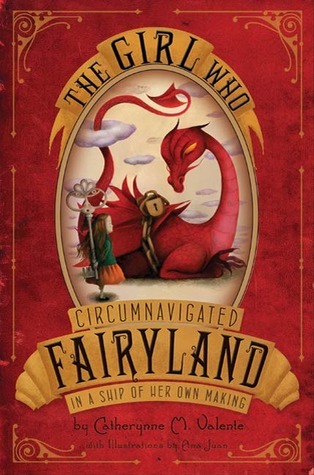

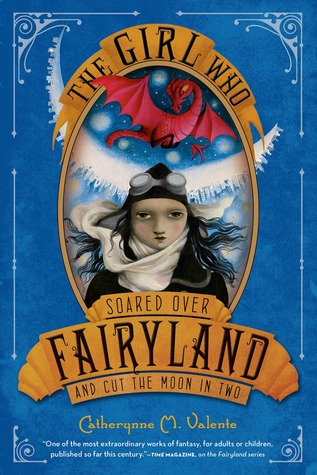
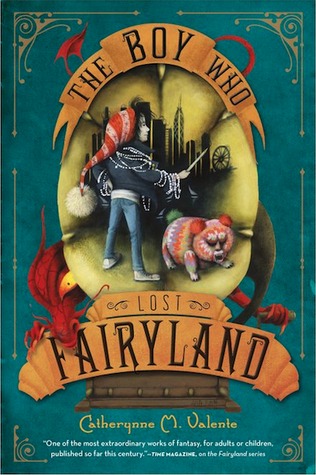

The Girl Who Circumnavigated Fairyland in a Ship of Her Own Making started life as a book inside a book – one of the favourite books of a character in Valente’s Palimpsest. Valente eventually wrote the first Fairyland book as an online serial – and the rest is history. The series follows the adventures of a girl called September as she makes annual trips to Fairyland, and it’s impossible to describe in any way that does it justice. Valente’s incredible imagination goes wild as she pulls from dozens of mythologies and literary traditions to create something completely unique and utterly unforgettable. It’s the portal fantasy for everyone who’s ever peeked into the back of a wardrobe just in case oh please please please, beautiful and strange and fierce and joyful. I challenge you not to be moved by the lessons of soap golems and marids; to not fall in love with A-Through-L, the half-wyvern, half-library who accompanies September in her story; to not cry happy tears at the joyful validation of its conclusion. This one’s a soul-shaker in the very best of ways.
Shattered Sigil trilogy by Courtney Schafer

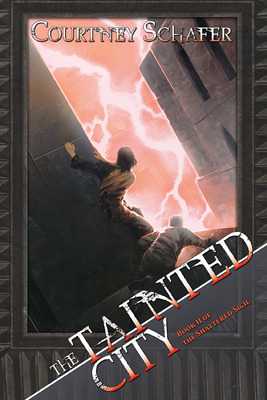
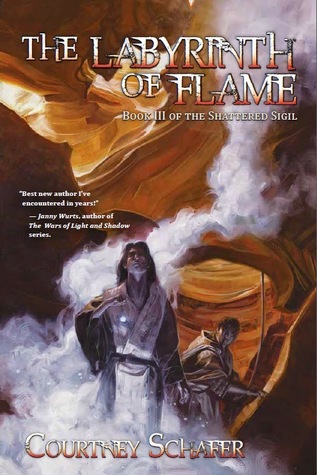
Fantasy via rock-climbing, smuggling, and blood-magic meet in this diverse, delicious trilogy where the politics of mages clash across mountains and secrets hide in demon-guarded deserts. Kiran is a mage-apprentice on the run from his master; Dev is the professional mountaineer hired to smuggle Kiran out of the region to safety – completely ignorant of the fact that Kiran is a mage, and mages will be hunting for him. Classism, magic, and queerness intersect in a story that digs far deeper than you might expect, and stands out not just in its unique themes but in how it chooses to deal with them. Another trilogy that should be far more famous than it is!
The Night Circus by Erin Morgenstern
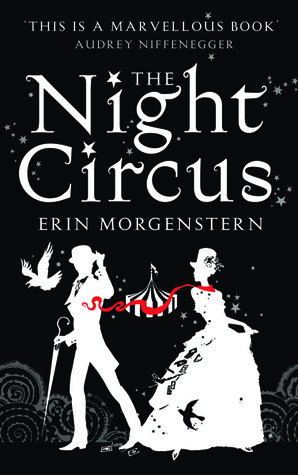
I mean, do I even need to say anything about this one? One of the rare fantasies that crossed over to appeal to fans of contemporary fiction too, The Night Circus took the world by storm, and with good reason – as anyone who’s read it knows.
Daughter of Smoke and Bone trilogy by Laini Taylor
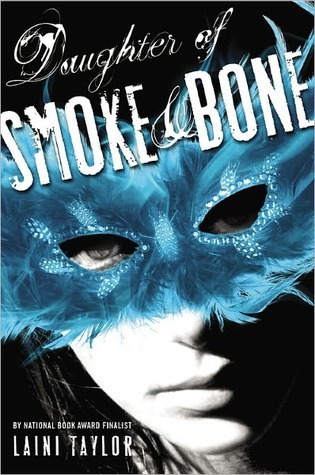
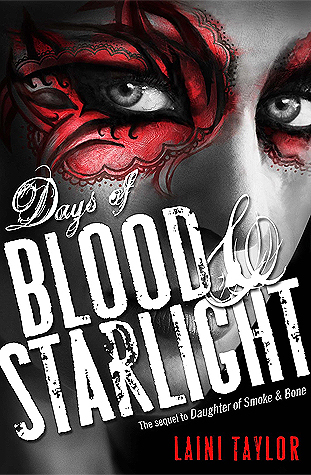

Taylor’s debut YA trilogy is weirdly beautiful and beautifully weird, with monstrous angels and very human monsters, a magic system built around teeth, portals between worlds, and a never-ending war. The series is fairly divisive – most people seem to either love it or hate it – but it’s more than earned its place on this list for it use of language and beauty alone, something that was unique in YA when Daughter of Smoke and Bone was published and is still pretty rare now. It also unabashedly and unironically embraces its tropes, from its dazzling protagonist Karou (who’s exactly as strange and perfect as I wanted to be at 16) to the strength and naivete of true love – something that’s maybe not so naive after all.
Eternal Sky trilogy by Elizabeth Bear
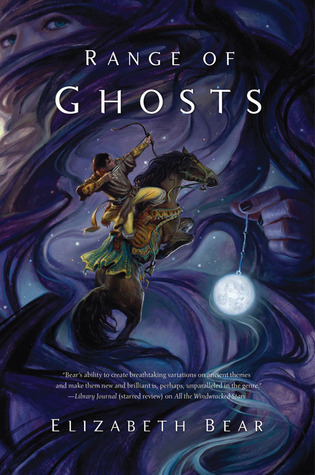
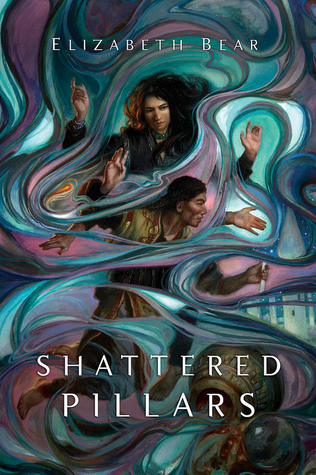
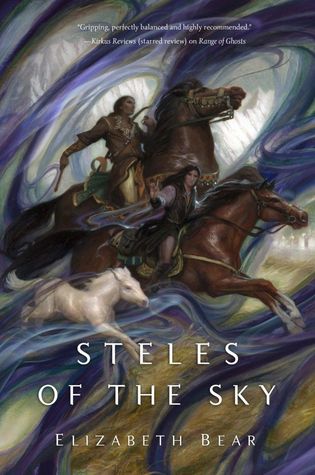
If those covers alone don’t convince you to pick up this series, then allow me to pitch it to you: High Fantasy in Central Asia. Familiar tropes, like the prince fighting to claim his throne and a dark Order out to take over the world, are given completely new life in a setting where each kingdom has its own sky – hence the trilogy’s title. To readers used to blandly Medieval European settings – which, let’s be honest, is most of us – Bear’s series is an absolute must-read, as is the follow up Lotus Kingdoms trilogy set in the same world some years later. Not to be missed!
Rhapsody of Blood series by Roz Kaveney
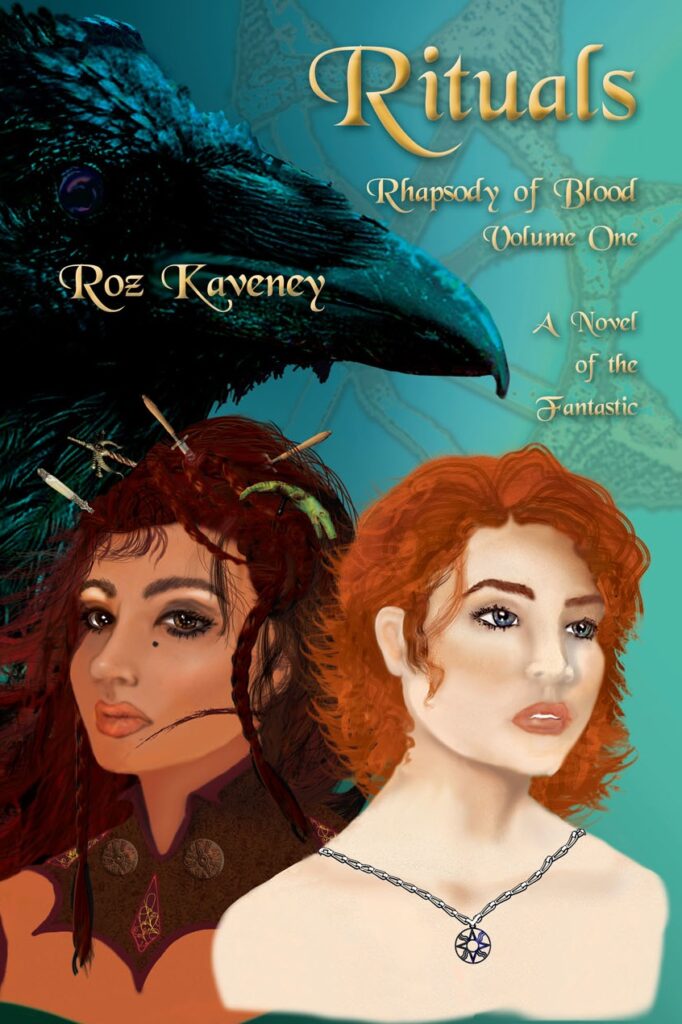



Please ignore the horrifically ugly covers; I promise the pages between them more than make up for the clumsy images. The (not quite finished) Rhapsody of Blood series switches back and forth between Mara, a god-slayer whose life twists and turns through the origins of many familiar legends (book one showcases the inspiration for both the Amazons and Noah’s Ark), and Emma, who deals with supernatural messes with a very classically British no-nonsenseness; her superpower is sometimes described as ‘talking sensibly’, which is impossible not to love. Elves get slapped, Emma’s dating a (girl!) ghost, Math almost destroys the world, the French Revolution is a cover for asshats trying to make themselves immortal – it’s a seriously wild ride, extremely queer, and blindingly, gorgeously unique. Please give it a shot, because it absolutely deserves to be on everybody’s bookshelf.
The Traitor Son Cycle by Miles Cameron
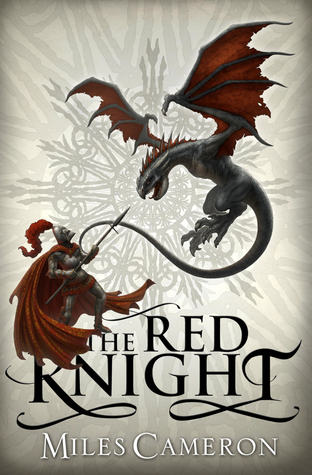
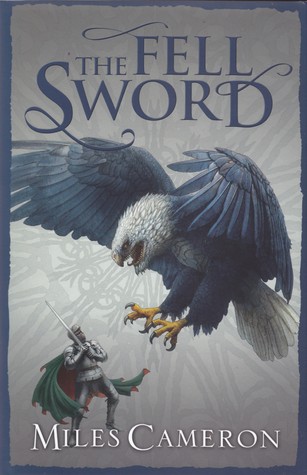
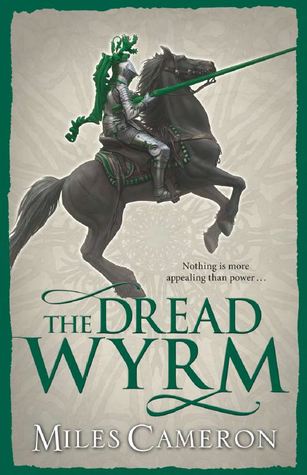

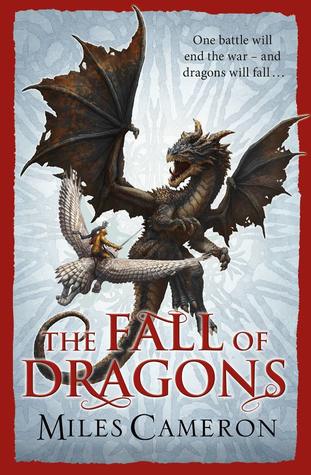
Now to flip back to some (superficially) far more traditional fantasy. Written by a reenactor who really knows his stuff – giving a uniquely realistic approach to all sword fights and battle scenes – the Traitor Son cycle is about a mercenary captain who becomes a great deal more over the course of the series. What starts as a conflict between Man and Wild – also embodied in the conflicting magic systems wherein mages draw power from the sun or nature – spirals outwards with each book, broadening and deepening the scope of the conflict until the fate of multiple worlds and humanity itself is at stake. Some readers will bounce off the intricate politics and detailed, tactical war effort, but the ones who push through will find a world and story that is much more than the Medieval Europe-esque setting it at first appears to be, with mage-nuns, cross-species alliances, and dragons manipulating the workings of fate.
The Raven Cycle by Maggie Stiefvater
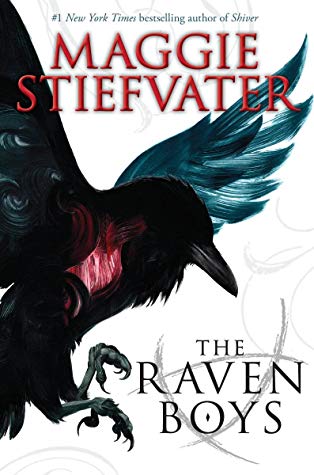
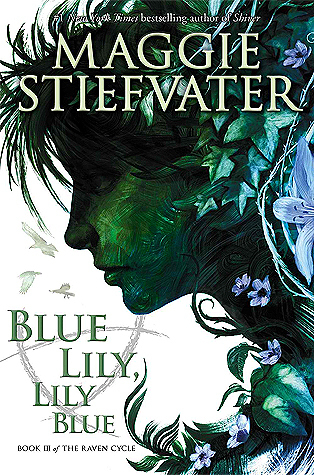
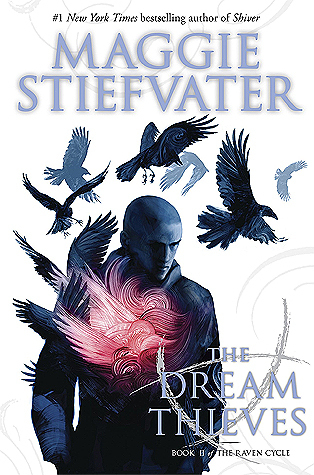

This gorgeously poetic story of five very different teenagers united in their search for something more – which at least superficially takes the form of an ancient Welsh king, but really is about far more than that – is simultaneously hedonistically languid and passionately urgent, capturing something essential and wondrous about the human condition and our need for magic. And there’s plenty of magic to be found here, with ley lines and dream forests and Greywarrens and a whole family of psychics. These books are real in a way few are, and I can’t put it into words, but they’re truly something special.
A new series with some of the same characters just started this year, and it’s not to be missed, either.
Olondria series by Sofia Samatar
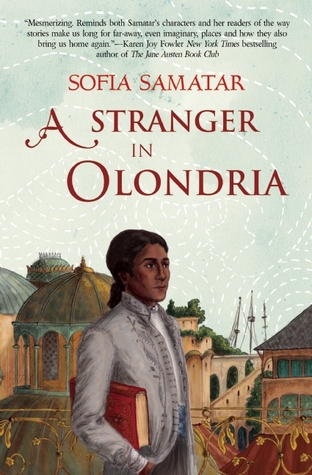
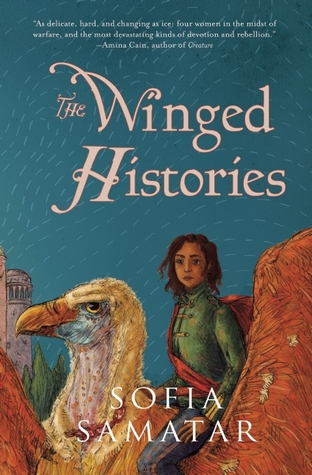
Like Night Circus, it’s a little difficult to believe most SFF readers haven’t at least heard of A Stranger in Olondria, although the sort-of-sequel Winged Histories made less of a splash (unfairly – it’s equally brilliant, if pretty different.) Samatar’s writing is hedonistically lush and strange, set in a world that will enchant as much as it confuses. Stranger is an unabashed love-poem/hymn to a love of books and reading, and thus belongs on every bibliophile’s bookshelf, while Histories is more overtly fantastical. Both circle fictional politics and the different flavours of colonisation, and both are very much must-reads.
The Lynburn Legacy trilogy by Sarah Rees Brennan
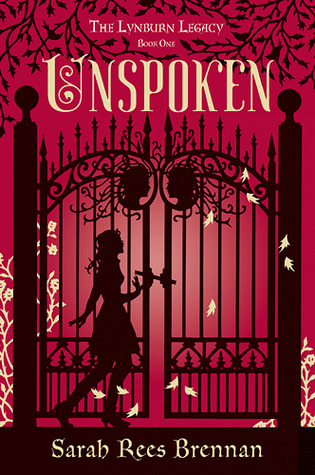

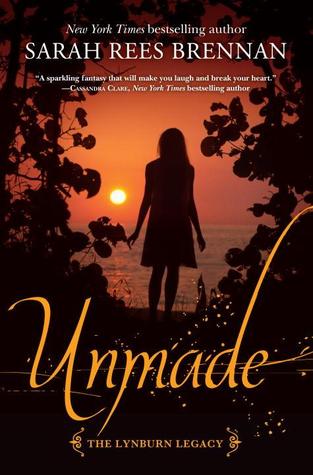
Brennan has been an author to watch since her debut Demon’s Lexicon in 2009, and to be blunt I recommend every one of her books. The Lynburn Legacy trilogy, though, is an especial stand-out for taking a number of YA paranormal romance tropes and actually dealing with them – like making it clear that a telepathic bond with someone you love is actually horrifically awkward rather than awesome. Family, abuse, race, friendship, queerness, magic, and sacrifice combine into an unmissable trilogy about would-be reporter Kami, and what happens when she and her friends discover real magic. It’s beautiful, brutal, deep, and hilariously funny all at once, a combination few writers can pull off, but that Brennan excels in.
And All The Stars by Andrea K. Höst

This standalone novel about an alien invasion doesn’t take any of the routes you’d expect, and it is absolutely a good thing. Separated from her family and growing stars in her skin, Madeleine is an artist who forges a new home with new friends, all of them teenagers and all of them trying to cope with their world being turned upside-down. I don’t think I can pitch this one any better than its blurb does, though: Come for the apocalypse. Stay for cupcakes. Die for love.
The Craft Sequence by Max Gladstone

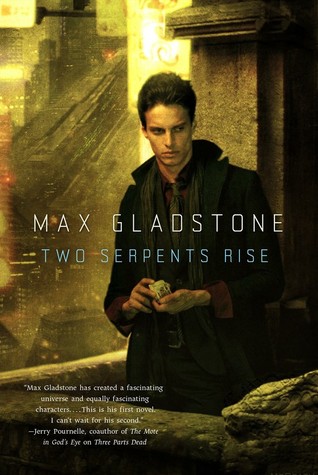
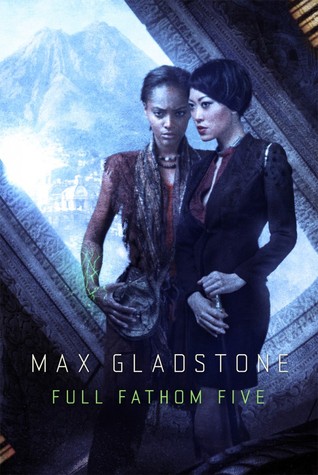
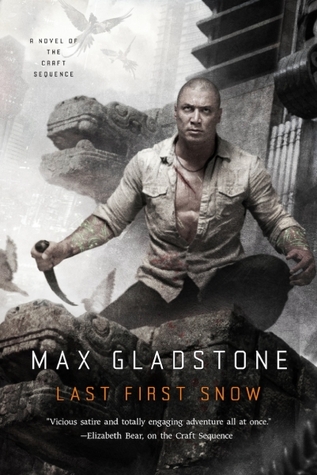

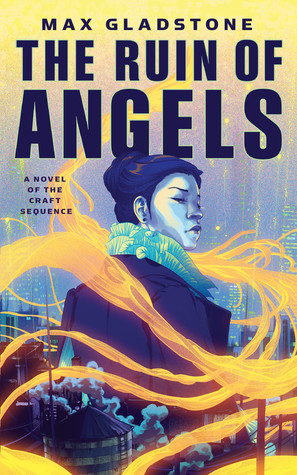
Gladstone burst onto the SFF scene with Three Parts Dead, the first in a series where law is magic (or magic is the law?), gods au naturel exist alongside synthetic deities, souls are currency, and the Old Ways are very much in conflict with the new. Published in non-chronological order (although they can very much be read in publication order) they really have to be read to be believed.
The Golem and the Jinni (The Golem and the Jinni #1) by Helene Wecker
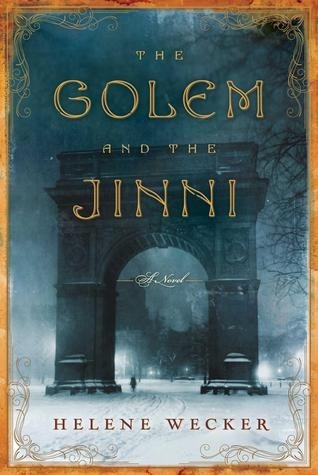
Another fantasy novel that caught the attention of contem-fic readers, The Golem and the Jinni is a quietly beautiful book about a golem – a clay construct of Jewish magic – and a jinn/djinn/genie meeting in New York after they both end up there for very different reasons. Their relationships with their respective immigrant communities – not that there are more golems or jinn, sadly, but both characters become entwined with their human counterparts, the Jewish and Arabic communities – are detailed and lovely, as both have to figure out their own ways of meshing with the human world with their respective handicaps and friends. It’s a love story, but not really a romance; more about the love communities have for each other, how strangers can be a family too, and maybe something of a love letter to New York. Wecker’s extremely gifted at weaving the fantastical into the mundane (but not boring) reality, and we’re supposed to be getting a sequel in 2021. Personally, I can’t wait.
Sea Change by S.M. Wheeler

Almost no one seems to know this book exists, which is ridiculous, because it’s hands-down one of the jewels of the decade. Written in a style I can only describe as ‘dark fairytale’, it’s about a girl whose best friend is a kraken, and when he goes missing, has to undergo multiple adventures and quests to get him back. The writing is beautiful; the story is brutal, made more so by its velvet edges and lyrical writing that keep tricking you into thinking this is the sweet, pretty kind of fairytale. It isn’t. What it is is unabashedly queer; one of the very first things the main character has to give up is her biological gender, although she continues to self-identify as female for the rest of the book, even while passing as male. It’s a strange, intoxicating, incredible story, one that’s had me eagerly on the lookout for more works by Wheeler since its publication in 2013. YOU NEED TO READ THIS BOOK.
The Coldest Girl in Coldtown by Holly Black
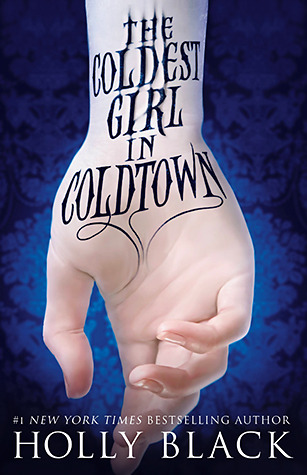
Black is justifiably well-known for her faeries, but it’s her vampire novel that won her a spot on this list; a stand-alone urban fantasy where vampires have stepped out of legend and onto reality tv – more or less. Celebrities and social media stars, vampires live in Coldtowns, enclaves where the cameras are running 24/7 and the party never ends – but where any starry-eyed human fangirl, -boy, or -other could be the next entrée. Tana is as far as you can get from being a fangirl, but when she’s the sole survivor of a vampire attack, she has to get to a Coldtown to quarantine herself – and to help the strange, not-super-sane vampire who might just keep her heart beating.
Imperial Radch by Ann Leckie



What is left to say about this series that hasn’t already been said? Leckie pretty much instantly carved out a spot for herself as one of the genre’s heavyweight-champs, and she well deserves the title, with her wildly inventive sci-fi series following a sentient spaceship that’s been trapped in human form. There’s so much more to this series than just that, but if you haven’t read it, you’d never believe me if I told you. It’s simply one you have to pick up and read for yourself.
Chronicles of the Unhewn Throne by Brian Staveley
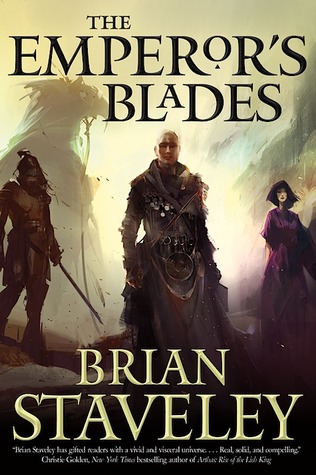

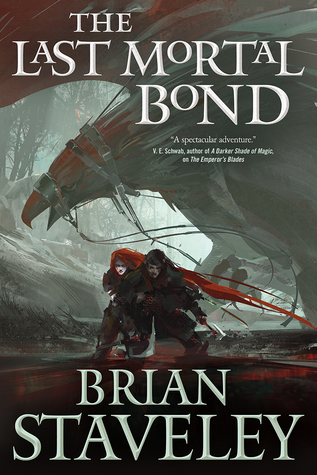
This is another series that at first glance looks like something we’ve already seen a thousand times before – there’s an empire, and the emperor’s dead, and there’s even an elite fighting force that gets around on giant eagles. Well, I still prefer the raptors from Kate Elliott’s Crossroads trilogy, but Unhewn Throne still drops into the genre like a grenade going off. It’s complex and brilliant and its familiarity is only skin-deep; from skin colour to gender to sexuality, Staveley challenges every expectation of ‘traditional fantasy’ and then some, creating a unique, vastly complex world where the stakes are so much higher than they first appear and no one is safe. It’s not grimdark, but it is as vicious and brutal as it is beautiful; wickedly clever, delightful, and horrifying in equal measure, once your eyes are on the page, they’ll be glued there. The first trilogy is complete, but there’s a standalone prequel and sequels incoming – you’ve got time to read all the books published so far if you hurry.
The Goblin Emperor by Katherine Addison

A sequel has been promised, and for everyone who’s read Goblin Emperor, it can’t come soon enough. When his father and older brothers all perish in a zeppelin accident, half-goblin Maia must take the elven throne, despite being utterly unprepared for it. What follows is a stunningly beautiful book, with writing so pretty it’ll make you cry and a story that, as far as I can tell, makes anyone who reads it just feel happy. It’s impossible to put it into words, but it’s both a personal favourite and without question one of the decade’s superstars. If you haven’t read it yet, you absolutely must!
Cuckoo Song by Frances Hardinge
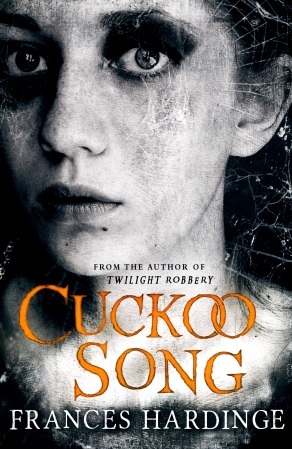
Hardinge is justly famous for her wildly strange, wickedly clever, deeply meaningful Middle-Grade novels – books that, I promise, have plenty to offer older readers too. Cuckoo Song is not one of her most well-known works, but it deserves to be. There’s not much I can say without giving away the biggest and most delightful twist in the book, but this is a wonderful story about personhood, finding yourself, faeries, and a dozen different definitions of ‘family’. It’s very much one I’d make mandatory reading if I could.
In Other Lands by Sarah Rees Brennan

If you haven’t read this yet, I envy you, because there is nothing like the pure joy of opening up In Other Lands for the first time. Like The Girl Who Circumnavigated Fairyland in a Ship of Her Own Making, In Other Lands was originally published online – a free serial on Brennan’s blog. Back then, it bore the title Turn of the Story, and it quickly gained a (well-deserved) cult following. Polished and expanded for traditional publication (seriously, even those of us who read it in its online incarnation found plenty more to love when it was rereleased), In Other Lands is, in the simplest possible terms, the story of a snarky bisexual who is taken to magic school, and is distinctly Unimpressed. That doesn’t come close to doing it justice, though, not when Brennan examines, dissects, and subverts so many classic fantasy tropes – most notably, the glorification of war and violence. In Other Lands will make you cry, but it’ll also make you laugh out loud as only one of Brennan’s books can, and it is truly, truly one of the decade’s greatest.
The Wayfarers series by Becky Chambers
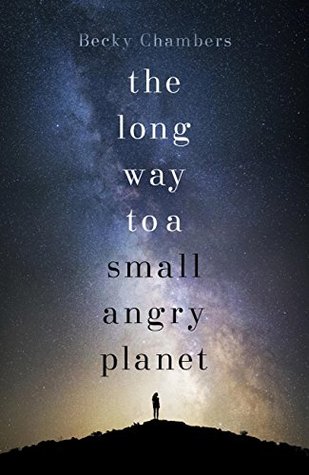


More books that simply make people happy, the Wayfarers series combines incredible worldbuilding with languid, small-scale plotting and character-driven narratives. It’s not the fate of the galaxy at stake here; Chambers’ books are more personal and intimate than that, slower and sweeter. Which isn’t to say it’s all candy and rainbows, because it isn’t, but…oh, just pick them up and give them a go, if you haven’t yet. You’ll see what I mean.
The Worldbreaker Saga by Kameron Hurley
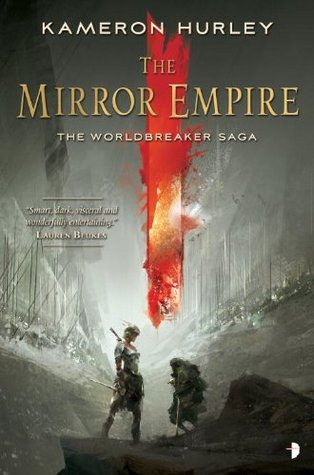
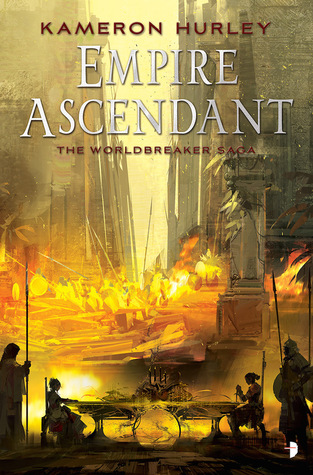
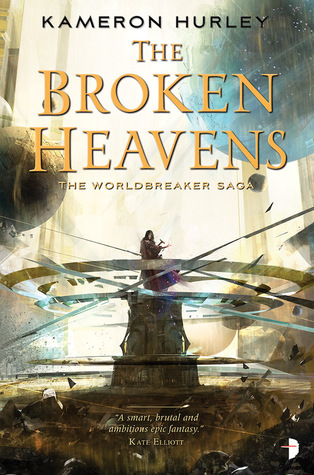
One thing you can definitely never accuse Hurley of doing is playing it safe. It’s not actually that often that we get fantasy – or sci-fi – that really and truly goes for it; I think it’s because really fantastical worlds, really alien ones, are hard for most readers to get into. Real Fantasy, if there is such a thing, is really, truly, genuinely other in a way most stories never come close to. The Worldbreaker Saga, on the other hand, blows past that line without even noticing it. Hurley has crafted not just one, but multiple worlds that truly feel like other worlds, places untouched by the influences we take so for granted, we don’t even consider them influences. What does a world look like without horses? With magic pulled from the stars? When every touch requires consent? That otherness can make these books hard to adjust to, but it’s well worth it; Hurley spins the tale of inter-dimensional war, where the inhabitants of a dying world must kill their parallel-universe selves to save themselves. It’s a vast, complex, brutal epic, and the final book releases in just two weeks. It’s going to be one hell of a finale.
The Towers Trilogy by Karina Sumner Smith


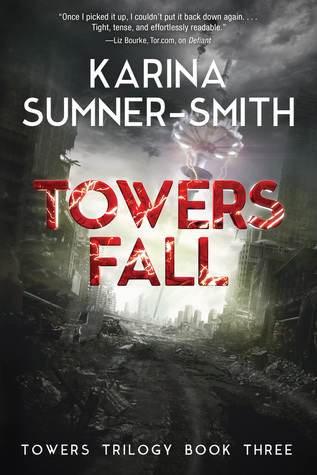
It’s so hard to talk about this trilogy – which, again, is one that’s not nearly as well-known as it should be. In a post-apocalyptic society where everyone has magic, Xhea has none. What she does have is the ability to see ghosts, something she turns into a small business that just about keeps her alive. But when she discovers Shai, a ghost like no other, their friendship doesn’t just turn Xhea’s life upside-down – it upends their entire world. With gleaming towers floating in the sky as palaces of the rich and monsters haunting the night down on the ground, the Towers trilogy is one that spins a unique magic system around the story of two friends – and Xhea and Shai’s friendship is everything. It’s so rare to find a story where friendship trumps romance, and here, there’s no romance at all; these books are all about these two friends and their fight against the system that bears a terrifying resemblance to ours. Classism, capitalism, poverty, disability, what it means to be human, what it means to be alive – Sumner-Smith doesn’t flinch away from deep topics even as she weaves an incredible story that you won’t be able to put down. I know I couldn’t, even for a second.
The Trifold Age series by Andrea K. Höst
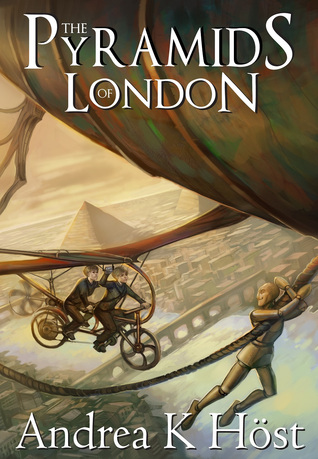
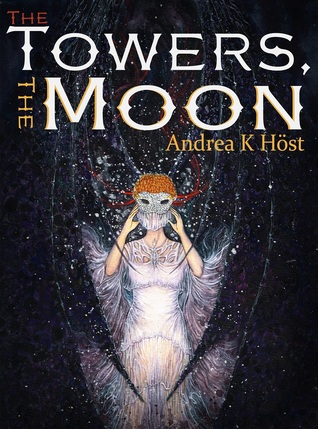
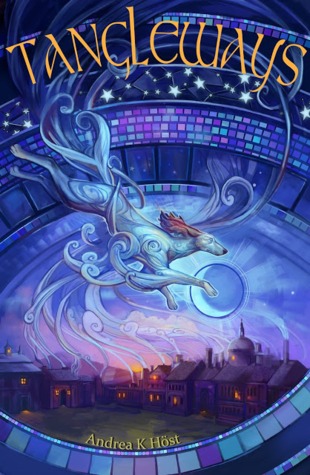
Listen, if you want to protest Höst appearing on this list so many times, go talk to her and tell her to stop writing so many amazing books. The Trifold Age is set in a world that kinda…sorta…looks like our own, if you turn it upside-down and squint a lot. You can more or less tell that the physical geography matches up with ours, anyway, even if the countries have different names and very different cultures. As you might guess from the title of book one, London is full of pyramids – because the weather-controlling vampires of Egypt have made Egypt a world-influencing superpower in this universe, alongside Rome. The worldbuilding – and casual queerness – is just ridiculously amazing, and I could spend hours waxing poetic about what Höst has done with the concepts of gods and souls, but the characters shine too. When her sister and brother-in-law are killed, Arianne takes in their children and is convinced by their insistence that their parents were murdered. What follows is a fantastical investigation that crosses paths with myths and legends unique to Höst’s imagination, and although we got a collection of novellas set in this same world, I can’t wait for the full sequel. Hopefully next year!
Uprooted by Naomi Novik
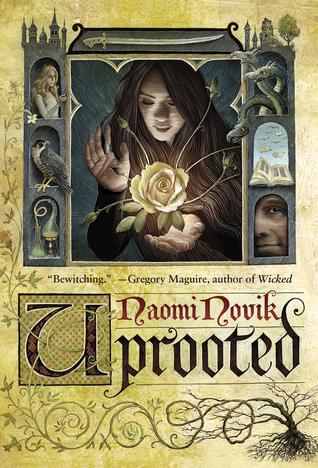
Uprooted is not without its flaws – what the hell is that romance plotline??? – but it’s still an incredible book with one of the most magical approaches to magic I’ve seen in a long time. Again, though, I don’t think this one needs much of an introduction?
The Broken Earth trilogy by N.K. Jemisin
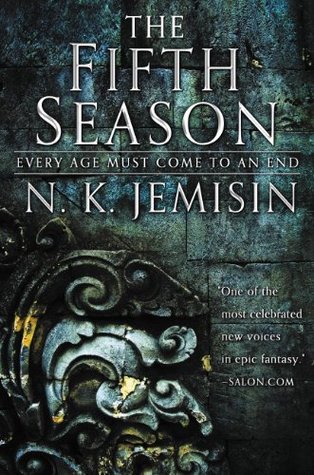
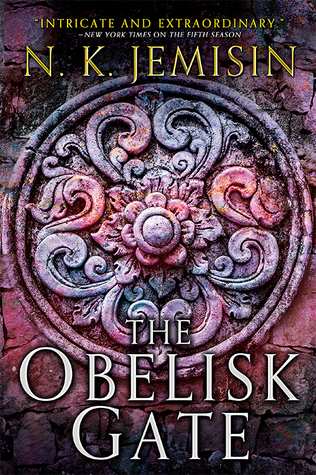

The Broken Earth trilogy surely doesn’t need an introduction either. All three books won the Hugo award. All three. Three years in a row. What even??? But if you pick them up, you’ll grasp why in just a few pages. I swear Jemisin only becomes a better writer with every book. If it’s even possible for her to get any better??? Her next novel might just destroy the world, in that case.
The Masquerade series by Seth Dickinson
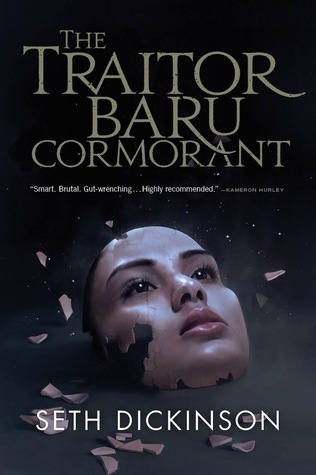

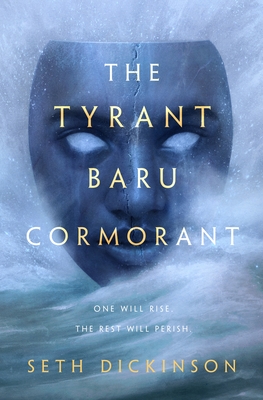
This (still in-progress!) series is not easy reading, and not exactly pleasant, but there’s no arguing that the Masquerade books are brilliantly written. When Baru Cormorant’s island home is taken over and swallowed up by the Masquerade’s empire, she determines to break the system from the inside. And that’s not going to happen by playing nice. The books are intricate, sneaky, heart-breaking, and stunning; Baru’s superpower is Math and economics, and if you’re not already into those things you’ll be stunned by just how much you can break – or affect – with them. (I know I was, even though I shouldn’t have been!) Baru also happens to be queer, but this isn’t a series for readers looking for happy endings and true love conquering all. If you’re okay with your stories getting dark, though, I definitely recommend it.
Radiance by Catherynne M. Valente
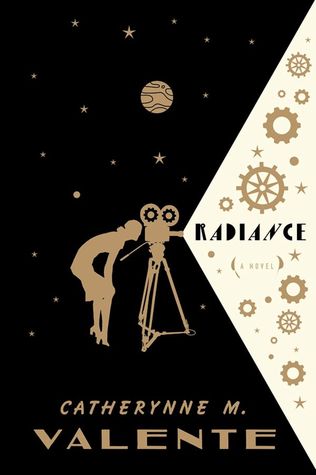
Valente is very like Höst, okay; it’s basically impossible for either of them to do wrong. Radiance is a surreal, exquisite musing on what the world – and the universe – might look like if we’d never progressed to colour in film. …And if space travel was very, very different. …And if the rest of the planets in the solar system were strange and magical wonderlands. Look, the official blurb described it as a ‘decopunk pulp SF alt-history space opera mystery’ and to be honest, that doesn’t even come close to encompassing all that this book is.
It’s a must-read, is what it is. That’s honestly the only way I can think to put it.
The Abyss Surrounds Us duet by Emily Skrutskie
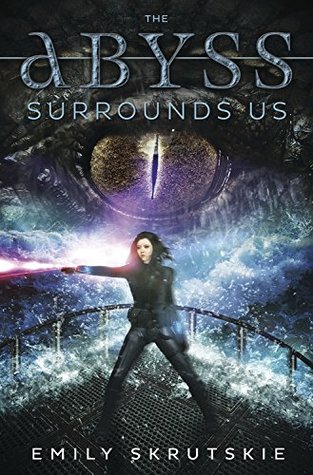
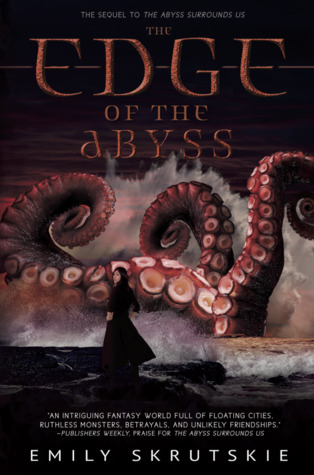
Set in a possible future of our world, where the sea levels have risen to catastrophic heights, the Abyss duet follows the story of one Cassandra Leung, who comes from a family that creates, trains, and controls custom sea-monsters to protect ships from pirates. When Cas is captured by a pirate crew on her first solitary escort job, she discovers it’s because the pirates have somehow gotten hold of an illegal sea monster pup – and they want her to raise and train it. Cas is queer and gets a love interest, but the duet is primarily an adventure story that examines situational ethics, poverty, classism, environmentalism, and when (if ever) violence is justified. It’s especially stunning because this duet was Skrutskie’s debut, which guarantees she’s going to be one to watch in the future.
Wayward Children series by Seanan McGuire
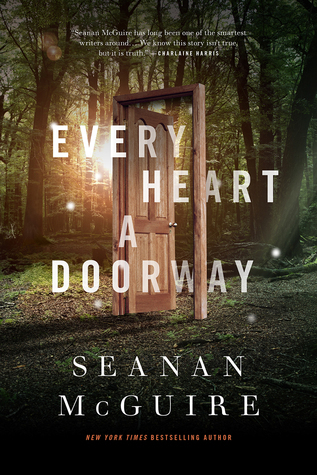
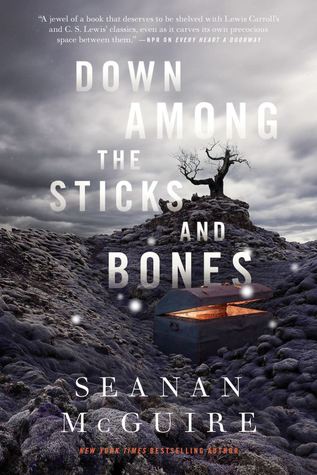
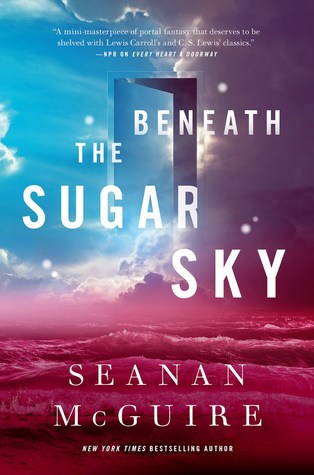
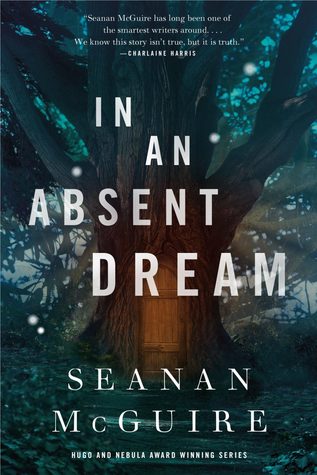
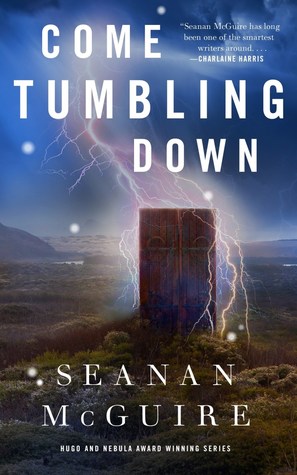
With another installment coming in January, the Wayward Children series kind of functions as a bookend to Valente’s Fairyland books; both are portal fantasies about portal fantasies, but where the Fairyland books are pure wonder, McGuire’s take is bittersweet. The primary setting is a boarding school for those who have found portals to other worlds – and been sent back, ala the Pevensies from Narnia. Beautifully diverse, it’s incredibly heart-wrenching, because while it’s a series about hope, it’s also about what happens when that hope is betrayed or even murdered. Like the Fairyland books, the Wayward Children series touches something deep inside the reader’s heart, some raw secret part that aches for magic and still struggles to make sense of the world we’re in. It’s a potent, beautiful series – I took the name for this blog from the title of the first book – but just. Be ready to hurt, in the best and worst of ways.
The Power by Naomi Alderman
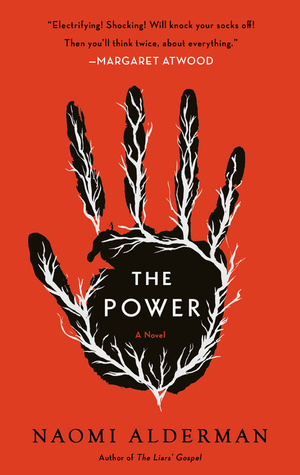
I think of The Power as this generation’s answer to The Handmaid’s Tale; where Tale is a showcasing of a patriarchal system gone almost ludicrously too far (and it’s that almost that is what makes it terrifying), Power is a manifesto making clear that a role reversal would be no better. When women all over the world suddenly gain the ability to generate electricity – and thereby shock others, including any would-be male assaulter – the power dynamics between sexes shift. Alderman touches lightly on the position of genderqueer individuals in this world, but the focus is on the point that it’s power over others that corrupts – men aren’t inherently evil any more than women are inherently good; a matriarchy (at least one defined by power in this way) is no better than a patriarchy. It’s not dull moralistic preaching, though; Alderman writes an excellent, fast-paced story, following the wide-reaching implications of her premise to the very end – and then some. The conceit of the novel’s writing, revealed fully at the very end, will have readers doing a double-take and leave them unable to stop thinking about this book for a long, long while.
Hollow Folk series by Gregory Ashe
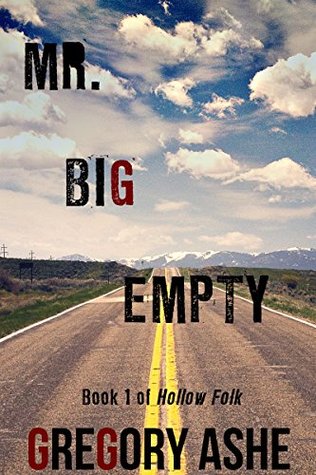
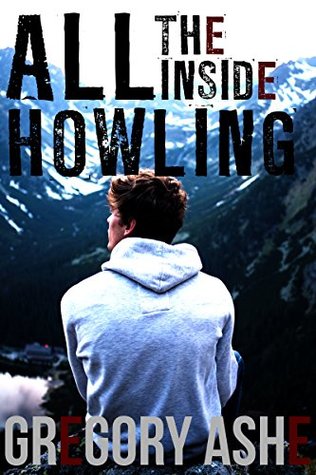
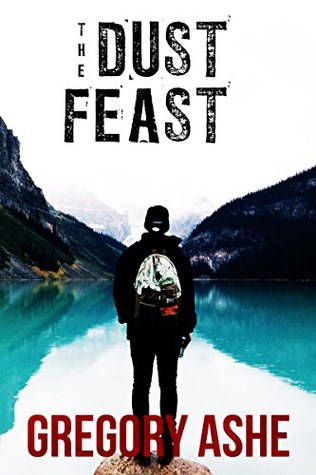
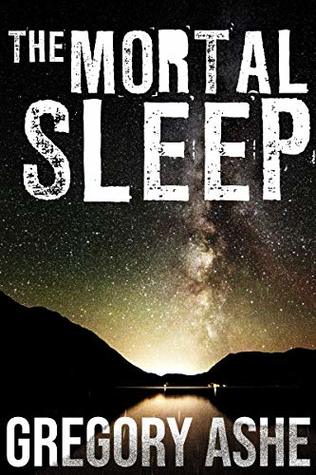
I have consistently failed to put into words everything this series accomplishes and how it does it, never mind what it means to me. I can tell you it’s a self-published urban fantasy set in rural America, that it’s dark and vital and real, that it’ll tear your heart out as many times as it puts it back together again. It’s about child abuse and mental illness, about superpowers and psychics, about love and magic and what the hell family is supposed to mean. It’s about making broken pieces (and broken people) into new wholes, and how to be a hero when you hate yourself. It’s about anger and hate and overcoming both, self-harm and friendship, all the different ways you can be strong. It’s queer, but that’s not why I love it or what makes it vital reading. Ashes gets right what so many authors refuse to even go near, unashamedly brings into the light topics and themes the world says we’re never supposed to talk about, and I’m so damn grateful. I want these books in the hands of everyone who can bear them. They are so unspeakably good, and necessary.
Summer in Orcus by T. Kingfisher
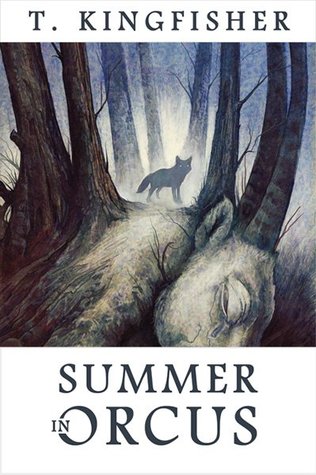
T. Kingfisher, aka Ursula Vernon, has consistently written masterpieces (misstresspieces?), including multiple retold fairytales (seriously, please check out The Raven and the Reindeer for the queer Snow Queen story you never knew you needed.) But it’s Summer in Orcus that stops the breath in your throat. It should be a simple, whimsical little story, about a girl who asks for an adventure when she meets Baba Yaga, and ends up in another world, Orcus. There are so many little pieces that should just be silly, that make you smile because you can’t not; like the were-house, a wolf who turns into a house at night. All the charming little things like that dress this up as a children’s story – but the thing about children’s stories, real children’s stories, is that they slip up and under your ribcage when you’re not looking, and into your heart like a knife, and age is no protection.
This is a simple, whimsical little story. Except for how it’s not.
The Dragon’s Legacy series by Deborah A. Wolf
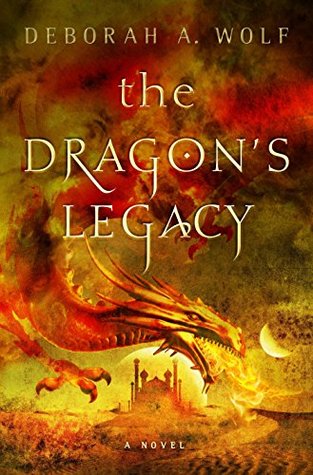
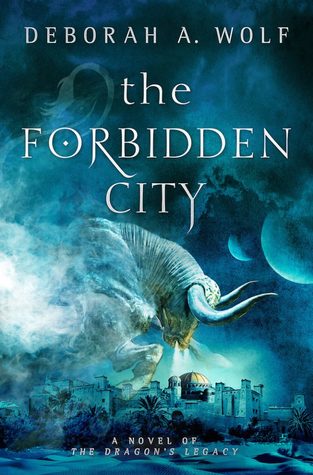
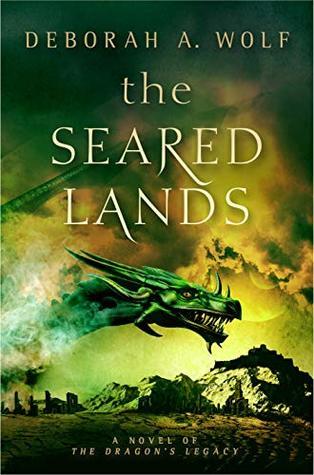
This is another series that goes beyond the scope of words to describe, and like too many others on this list, it isn’t as famous as it should be. Set in an incredibly unique, beautiful, startling world where the sun is a dragon and so is the earth, Dragon’s Legacy follows a number of characters, from the Amazon-reminiscent desert dwellers bonded to giant sentient cats, to the dying king who holds the world in his hand, to a far-away young man only half-human. It’s gorgeous, and different, and violent; terribly beautiful and beautifully terrible. It’s strange, and revels in that strangeness, dares you to look away, to admit it’s too much, to give up – but if you don’t, it rewards you like nothing else. I’ve never read anything like it, and I doubt I ever will again, and I never, ever want it to end.
The One Who Eats Monsters by Casey Matthews
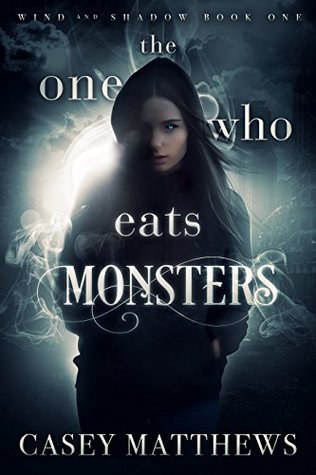
Listen, when I was recommending this to someone, I pitched it as primordial feral goddess falls in love with a human girl, and if that’s not enough to sell you, then I don’t know what is. Matthews has created an incredible mythology for this world, an entire eco-system of gods and monsters like nothing else I’ve ever seen. This book is a dark, hidden gem, wonderfully weird and as fierce as its main character, and it belongs on the bestseller list. I can’t believe how close I came to missing it, and I’m so glad I didn’t.
An Unkindness of Ghosts by Rivers Solomon
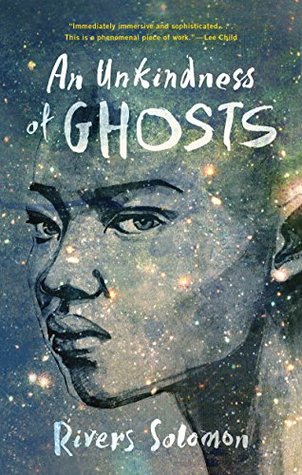
It occurs to me that there are more ‘dark’ books on this list than I expected, and Unkindness is probably one of the darkest of them. A generation ship has become a slave plantation in space, more or less, and it’s every bit as horrifying as that premise should be. I won’t blame anyone for putting this book down and looking for something lighter, but if you can stand it, it’s worth it, exquisitely written and beautifully painful, a mirror to our past that could far too easily become our future again. It’s a story of race and class and family, abuse and systemic abuse and queerness – both in terms of LGBTQ+ and in that spine-shiveringly weird strangeness. It’s about oppression and resistance, all the different ways to resist, and how to stay human while you do it. What makes you human, and what doesn’t. It’s breathtaking, and if some of those breaths are lost to sobs, well, it still counts.
Tensorate Series by Neon Yang




The Tensorate series is hard to describe, which is only fair, because everything about it – from narrative structure to setting to its characters – resists being pinned down and fit into a box. A series of novellas following, more or less, the lives and legacies of a pair of imperial twins, in an empire where magic users manipulate the Slack to control the building blocks of reality and children choose their sex and gender when they come of age, it’s an extended story of family, prophecy, and resistance against tyranny – as well as the conflict between magic (and the tyrannical system it supports) and industrialisation. Especially considering that these are novellas, you really have no excuse for not picking these up and giving them a try – they’re more than worth it.
Port Lewis Witches series by Brooklyn Ray
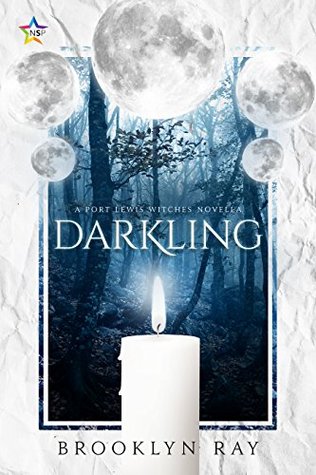

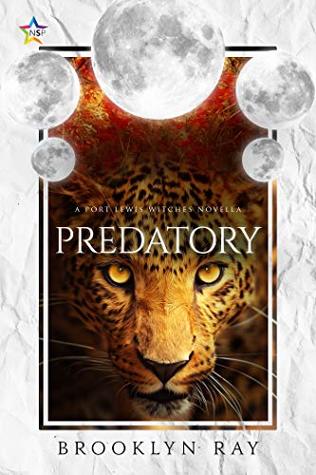
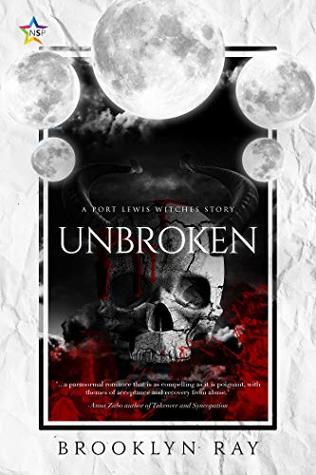
Queer, urban-fantasy erotica. Or erotic urban fantasy. I’m not sure what order that ought to go in. But I know these books are incredible, defiant and magical and gorgeous, with an amazing amount of worldbuilding and characters who’ll steal your heart when you’re not looking. The series starts with a trans witch who’s half necromancer, half (fire) elemental, and needs to find a way to reconcile his heritages before they tear him apart; I’m not sure I can say the books get better from there, because I’m not sure you can get better, but they are all equally brilliant. And if you’re raising your eyebrows at erotica making it to a best of the decade list, then a) get that stick out of your ass, and b) you clearly haven’t read this series yet, or you’d already know that it having a place here was never even a question.
The Hidden Histories by Karen Healey and Robyn Fleming
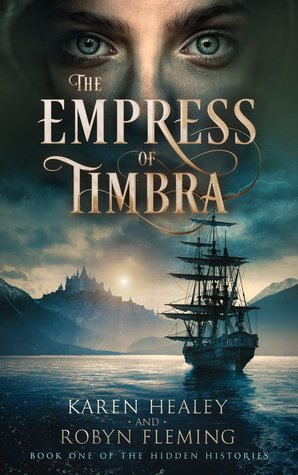
Like Goblin Emperor and In Other Lands, Empress of Timbra has that x factor that just makes you happy – even though there’s plenty of adventure and drama and it’s far from all rainbows. It was also self-published, which I think was a good call, because I can’t imagine how a traditional publisher would try to shelve it. The main characters aren’t quite teens, but it’s complicated and intense enough to massively appeal to adults as well as younger readers; it’s political fantasy, except for how it also isn’t. What it is is brilliant – full of magic and the different flavours of family, with wonderful worldbuilding and characters you can’t help but love. Taver and Elaku are both illegitimate, half-siblings through their noble father, and they’ll have to work together to defend the Empress and her empire, whatever they think of each other. This isn’t a book that simplifies the politics or the stakes – don’t skip over it just because the protagonists are children; these aren’t writers who are talking down to their readers. But they will take you on one hell of an adventure, if you let them.
Space Opera (Space Opera #1) by Catherynne Valente
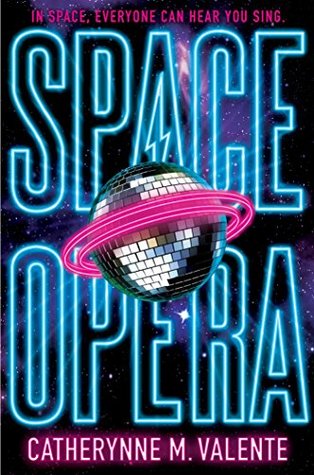
It is a crime against humanity that this didn’t win the Hugo, but I comfort myself with the certainty that it definitely won all the alien awards in the wider universe. This glitterpunk, hopepunk confetti explosion of mad revelry, defiance, and delight is the story of a washed-up genderqueer rockstar who ends up as the only hope for humanity when aliens arrive and announce that if we don’t place at least 2nd-last in the galactic equivalent of Eurovision, they (the aliens) will destroy us all. Fair enough, right? It is utterly wonderful AND we’re even getting a sequel, which as far as I’m concerned proves there is a Greater Power just as invested in Valente’s career as I am.
Crescent City series by Bryan Camp
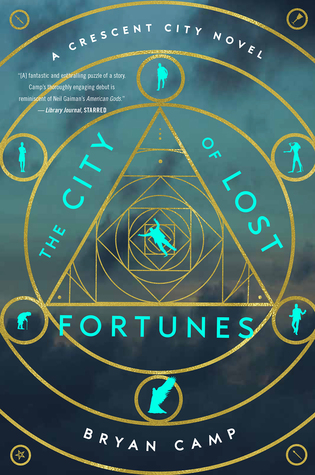

New Orleans might be a common setting for urban fantasy, but this is no common urban fantasy series. The Crescent City novels stand entirely independent of each other – you can read both, as I did, but they each stand alone just fine – in a world that excites me both as a reader and as a witch. Camp’s take on gods and spirits remaking themselves with each new age is just wonderful, and the system of afterlife he creates for Gather the Fortunes is just mindblowing. There’s nothing for me to fault here – the characters, setting, world, and stories are everything urban fantasy should be, and if you’re a fan of the genre, these are a must-read.
The Tarot Sequence by K.D. Edwards
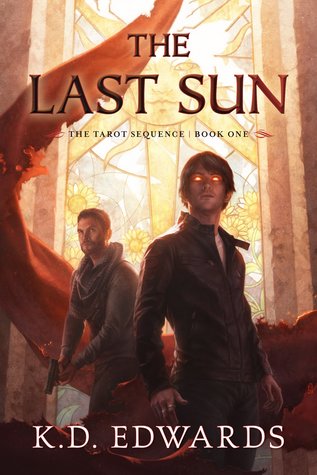
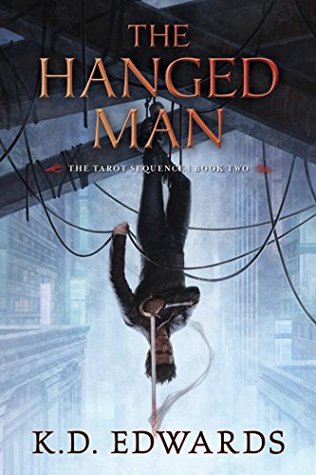
I don’t know how to scream about this series any louder: I’ve literally spent the last few months doing everything I can to promote it for the release of Hanged Man, book two of the sequence, because it is just that good. It’s urban fantasy with normalised queerness and group marriage, in a world inspired by the tarot, featuring a cast of characters who are more real than most living people I know, and who will definitely have you ready to die for them by the end of book two. I just. I can’t even, okay? Imma just leave my reviews for book one and book two here, but seriously, if you haven’t read these yet? You need to. You need to!
Starless by Jacqueline Carey
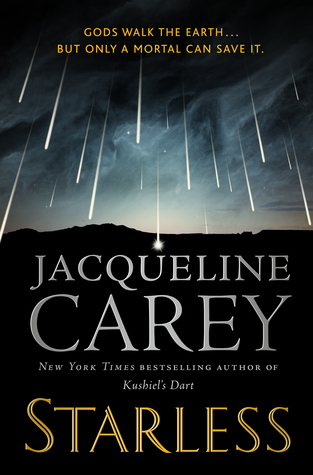
There are not many authors who can pull off an entire Epic Fantasy story as a standalone novel – but if anyone can, it’s Carey, and dear gods, she nails it here. In this world, there are no stars – because the stars are gods, all of whom were cast down to claim their own protectorates amongst the mortals. Khai is a warrior, trained since birth to be the protector of the daughter of immortals – a young woman with whom he shares a holy bond, even though they’ve never met. Together the two of them will embrace ancient prophecies and fight to save their world – even if the fight will leave it forever changed. The deities of Starless are exactly as strange and otherworldly as they ought to be, and the huge variety in the different kinds of human – all of them changed by their patron gods – is stunning. This is a beautiful, magical story, perfectly queer and perfectly wonderful, and just further proof that Carey is one of the empresses of fantasy!
The Salvagers trilogy by Alex White

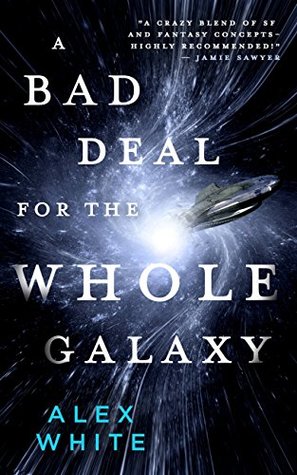
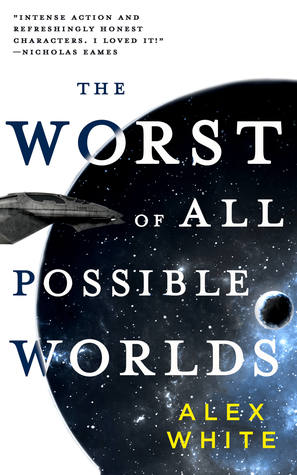
Science Fantasy was a thing for a while before I was born, but it was never (I think) super huge as a genre. Well, clearly it was just waiting for White to come along, because no one could possibly nail the concept as well as the Salvagers trilogy does. In a universe where (almost) all humans have magic – a ‘glyph’, basically a specific magical gift or ability – but spaceships and inter-planetary travel is also very much a thing, an extremely rag-tag crew have to work together to stop…gods. Or maybe people working to become gods. But I’m pretty sure some of them are gods already. It’s messy, unique, brilliant, queer, and un-put-down-able; White will have you turning pages fast enough to give yourself paper-cuts. The last book is out next summer, and I cannot WAIT, but that does give you time to catch up if you haven’t read these yet!
Summerland by Hannu Rajaniemi
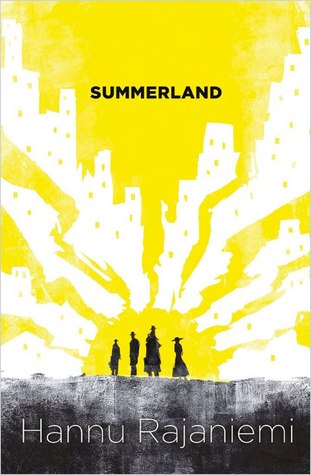
Listen. LISTEN. What if I told you that there really was an afterlife, but you need a pension and a ticket to get there, and also, the not-so-Enlightened West is battling with the Hivemind of Russia for control of it? Yes? Yes? Because that’s more or less what Summerland is about, and it is so weird and wonderful, and the worldbuilding is so freaking cool, and there are SOUL SPIES, and people who RENT THEIR BODIES TO THE SPIRITS OF THE DECEASED, and did I mention SPIES??? There are so many spies. It’s awesome. Please read this one, you have literally no idea what you’re missing out on if you don’t!
Half Witch by John Schoffstall
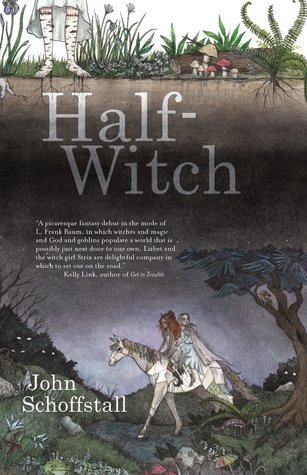
Half Witch.
Wow.
How do I even…?
Okay. Look. This is a story where God is real and answers prayers to Him (after a fashion), the sun goes around the earth, and witches are made, not born. In order to rescue her father, Lizbet must team up with the witchling Strix to cross impassable mountains and retrieve a very special book.
This book, though? Is snarky and sneaky and pulls from a bunch of mythologies and old religious concepts for its worldbuilding. It’s a fairytale for adults. It’s dark and bright and sparkling and will have you laughing your head off. It’s wicked, and so clever, and it just. It snatches your heart and it dazzles. I cannot sing this book’s praises enough. Why don’t more people know about it? Why isn’t it on billboards? Read this book, I say! And yes, that’s absolutely an order!
The Mere Wife by Maria Dahvana Headley
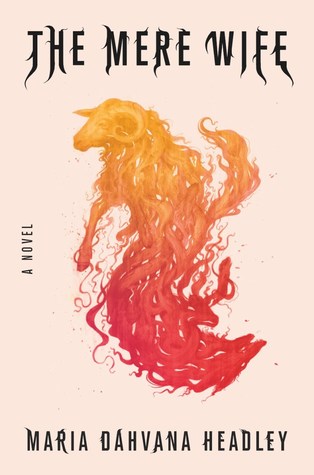
Headley’s Magonia duet is a gorgeous piece of work that I very much recommend, but it’s The Mere Wife that has to be declared one of the decade’s best. A retelling of Beowulf (no knowledge of the legend required, fear not) in a semi-fantastical suburbia, it’s about race and class and monsters and the strength (and wickedness) of women, all in Headley’s signature beautiful writing. What’s it like to be the mother of a monster? To be a monster? And what is a monster, anyway, in this world of ours? The answers will surprise you.
Sawkill Girls by Claire Legrand
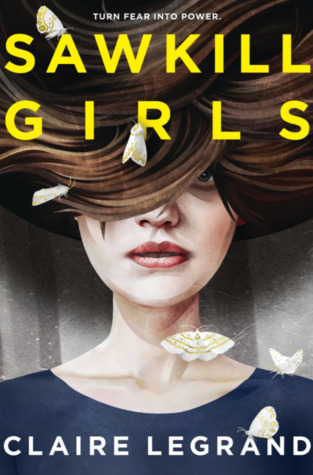
YA standalones seem to be pretty rare, but Sawkill Girls is a perfect one. Powerful, magical, feminist, and queer, it’s about three girls who are drawn together by an island that needs their help – literally, by the island itself. Murders and mysteries and demons abound, but it’s Legrand’s writing that turns this from a fabulous premise into an absolutely stunning book, an unforgettable urban fantasy I want to put into the hands of every queer teen girl out there – and everyone else too, if I can manage it.
Blanca and Rosa by Anna-Marie McLemore

To be honest, I probably should have put all of McLemore’s books on this list, but Blanca and Roja stands out above the rest – not really surprising, since McLemore only seems to become a better and better writer with every book. A modern, queer retelling of Snow White and Rose Red, with the magical realism that is McLemore’s signature, Blanca and Roja is an enchanting story about apples, sisterhood and brotherhood, love, identity, and friendship that is simply without flaw.
The Books of Ambha by Tasha Suri
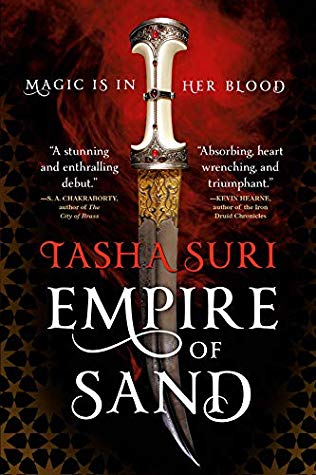

In a beautifully intricate world dreamed by sleeping gods, Mehr is half-Amrithi, the persecuted outcasts hunted by her empire. As the daughter of an imperial governor, she’s protected – until she isn’t. What ensues is a story about resistance and hope – not the thing with feathers, but the kind of hope with teeth and claws. It’s about love in dark places, about never giving up, about oppression and prejudice and never letting go of who you are. It’s not really possible to talk about Realm of Ash without spoiling Empire of Sand, but these are both breathtakingly beautiful books, even when they’re painful, about the different ways to be strong – about the different ways for women to be strong, especially. But Suri has definitely established herself as someone to watch – I can’t wait to see what she writes next.
Chorus of Dragons series by Jenn Lyons
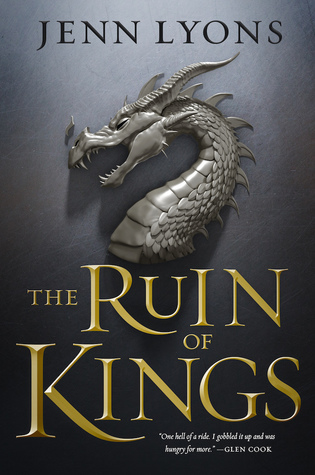
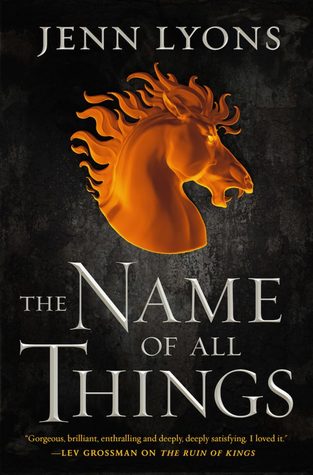

This is another series that pretends to be fairly traditional Epic Fantasy…for about five minutes. It’s not the queer characters, although the disaster!bisexual mc of Ruin of Kings is an adorable dodo. It’s more the fact that the colour of the sky is wrong, and how the gods came to be is definitely not how gods typically work, and that is definitely now how you run a system of government, oh my gods! And honestly, after Ruin of Kings, Lyons doesn’t even try to pretend she’s playing by the rules. Just look at the horse on that cover. It has fangs. The worldbuilding is incredible – genuinely, seriously out there in the best way – and dragons! Magic swords! All the things you think you know inside and out, but I promise you, Lyons is overturning the table. This series is a gamechanger, and not only can I not wait to read the rest of it, I can’t wait to see how it’ll affect the genre in the years to come.
Out of Salem by Hal Schrieve

The Matthew Swift series by Kate Griffin is my touchstone when I think of what Urban Fantasy is supposed to look like. Out of Salem is something similar, in the way that it weaves magic and the world we know together into a seamless whole. It’s very strange – a genderqueer zombie and a lesbian werewolf are our teenage protagonists, although their age doesn’t make this a YA novel – but it’s also brilliant. You can buy unicorn blood in the health food store, and students learn magic alongside algebra, and the seventh child of a seventh child can get a medal from the mayor for stopping a rampaging golem. The book itself doesn’t read like a usual book, in that it doesn’t really have a plot – it feels like real life, where things happen and the characters do their best to react or change them or prevent them from happening again, rather than there being a push within the story to reach a big finale. There isn’t a big finale, exactly, because life doesn’t have those. And Out of Salem is painfully realistic, for all its supernatural elements; the travails of the characters mostly focus on the prejudice against supernatural creatures, especially werewolves. But it’s a stunning example of what can be done with the genre, pushing boundaries in a way I don’t see often, and I hope there’s plenty more to come from Schrieve.
Teixcalaan series by Arkady Martine
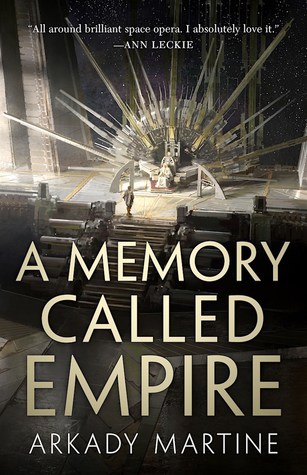
A gorgeously, impossibly intricate ‘hard sci-fi’, the Teixcalaan series starts with A Memory Called Empire, the story of an ambassador from a small asteroid belt sent to the sprawling galactic Teixcalaan empire to try and prevent her home from being swallowed up by expansion. Empire is noteworthy because of the sheer amount of worldbuilding Martine has done; the Teixcalaan are a baroque, highly-cultured society, constantly quoting or referencing one of hundreds of thousands of epic poems or sagas, holding incredibly complex quotation games as casually as I might play a game of Snap! It’s one of those epics that blurs the line between sci-fi and fantasy – not because there are magical elements, but because the Teixcalaan are effectively the elves in this scenario, elegant and flawless and so far above Mahit (the main character) and her own people that they’re hardly in the same star system… Except, of course, that it’s infinitely more complicated than that. The Teixcalaan (like elves) are far from perfect, and Empire is a thoughtful dissection of colonialism and colonisation, and the painful trap ‘outsiders’ can fall into of loving the culture that’s trying to destroy theirs. It’s a little bit a murder mystery and a lot of politics, circling around a secret piece of technology that is fundamental to Mahit’s people even as it would horrify the Teixcalaan beyond belief. I’ve heard that other readers struggled with the Teixcalaan culture, but if you’re a worldbuilding fiend like I am, you’re sure to adore this one. I can’t wait for the sequel!
The Outside series by Ada Hoffmann
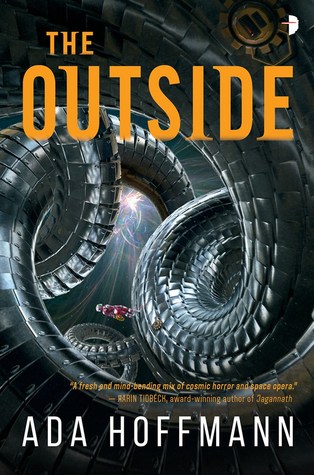
Outside – originally presented as a standalone, but now going to have a sequel! – features a queer autistic genius in a future populated and ruled over by AI gods; gods with their own angels and agendas, who take the souls of the dead into themselves to provide humans with afterlives – and themselves with fuel. Yasira is the lead designer on a groundbreaking space station after her mentor, Evianna, disappeared without explanation. When the station self-destructs, the gods declare Yasira a heretic and conscript her to help them find Evianna, who has spent years trying to bring ‘the Outside’ into what humans experience as real space, and keeps causing deadly breaches in reality. The worldbuilding is phenomenal, and so is the execution of the Outside concept; the scenes where Yasira or other characters come face to face with the impossible-to-comprehend are beautifully done, completely aside from the relief and delight of the autistic rep. It’s a powerful story that demands the reader pick a side between the bigger picture or the smaller one: value individual life, or sacrifice the few for the many?
Empress of Forever by Max Gladstone
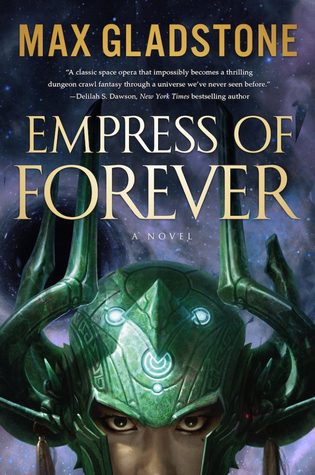
Another Science Fantasy novel – or at least, sci-fi that’s indistinguishable from magic in the very best way – Empress of Forever is what happens when a world-changing genius gets thrown out of our present far, far into the future, when all memory of Earth is gone and everything sentient has a soul in the Cloud. Impossible, and impossibly beautiful, tech and aliens run galore as Viv – our brilliant inventor-genius, whose grasp of technology is now dramatically outclassed by the merest of babes – tries to get home. It’s a quest that has her tangling with star-thieves and planetary pilots, and clashing with the Empress, the terrifying, nearly all-powerful figure who ripped her out of her own time in the first place. It’s sci-fi with the lavish and unabashed beauty of fantasy – Gladstone works hard to make each new concept or creature or technological marvel, not just impressive, but full of breathtaking wonder. It’s impossible not to imagine this story on the screen, just for the sheer amount of stunning visuals Gladstone paints in the reader’s mind – although I doubt any director could do Empress justice as a movie adaption. Guess you’ll just have to read it!
This is How You Lose the Time War by Amal El-Mohtar and Max Gladstone
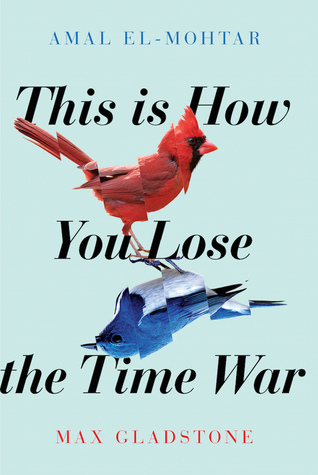
I’ve adored El-Mohtar since her incredible work Honey Month, so I knew this one was going to be marvellous even without adding Gladstone to the mix. Everyone’s been talking about this book this year, and the hype is well-earned; this is a lush, clever, beautiful story about time travel and agents on opposite sides of a war for the fate of humanity falling in love with each other via letters. That it’s queer is just a bonus. El-Mohtar and Gladstone just luxuriate and revel in dreaming up gorgeous strangeness, spinning it out in exquisite description and rich emotion. If by some anti-miracle you haven’t picked this up yet, you really do have to.
Border Keeper by Kerstin Hall
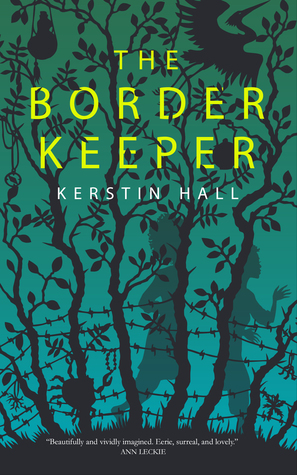
I wish this one had been a novel, just so I could spend more time with it. Luckily, Hall has signed on for a novel – not an expansion of Border Keeper, alas, but still! Anyway. Border Keeper is strangeness upon strangeness, beauty mixed with awfulness. A traveller with a complicated past comes to find the eponymous border keeper, who guards the line between the living world and the…after. It’s nothing like a traditional afterlife; it’s hundreds and hundreds of kingdoms populated by the definitely supernatural, and at least some who have undergone a kind of reincarnation in one of these strange new worlds. The traveller is looking for something – for someone – and the border keeper… Well, she ends up with an agenda of her own. I keep using this word, but this is such a unique little story. (It’s really not my fault this decade’s had so many original pieces!)
Desdemona and the Deep by C. S. E. Cooney
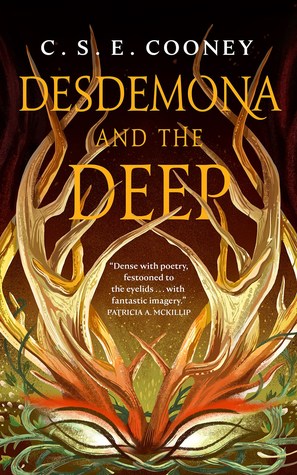
C. S. E. Cooney has been on my watchlist Bone Swans, her anthology of short stories a few years ago. Desdemona and the Deep is a decadent novella about a self-absorbed socialite who descends into something like faerieland when she decides to try not being self-absorbed for once. To save the lives of men her father sacrificed, she has to find a missing princess, with her best friend by her side. It’s a wondrous little book about the power of art and finding your true self and true home, with absolutely luscious, decadent writing that just proves Cooney is one to keep an eye on. I can’t wait to see what she gives us next!
The Merciful Crow series by Margaret Owen

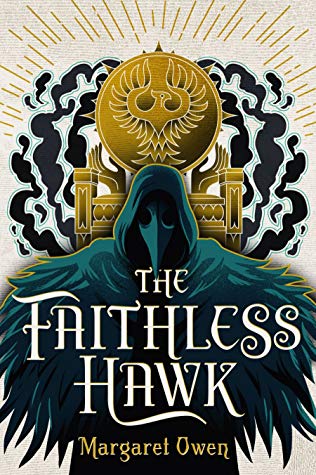
I’ve been trying to write a review for Merciful Crow for months, and I keep failing, because I just don’t know how to talk about it. It’s so different, and so good, and so gorgeously strange; a world where people are divided into castes named after birds, where Crows are the lowest of the low and Phoenixes rule from the throne; where magic is sparked from the teeth of witches. Superficially, it’s similar to other books I’ve seen, where a lowly Crow makes a pact to rescue a prince to win the possibility of better lives for her caste, but the execution and worldbuilding is like nothing I’ve ever seen. Fie, the main character, is a mix of stubborn hope and bitter realism in a way fantasy heroines rarely get to be, especially in YA, and the sheer scope of her caste’s persecution is chilling, even as the complexity of the situation makes the whole story so much more real than the cardboard cut-out look-alikes I’ve seen from other writers trying to tell similar stories. The mythology, the politics, the magic, the shifting dynamics between the characters, the cost of hope and the cost of survival and the cost of fighting for something better… It’s an absolutely breathtaking book.
Have to admit the title of book two, Faithless Hawk, has me worried, though. I don’t want any of the Hawks we met in book one to prove faithless!
But seriously, this is a series that somehow hasn’t made it onto many people’s radar, and it really needs to. Pick this one up before the sequel; I promise you you won’t regret it.
Pet by Akwaeke Emezi
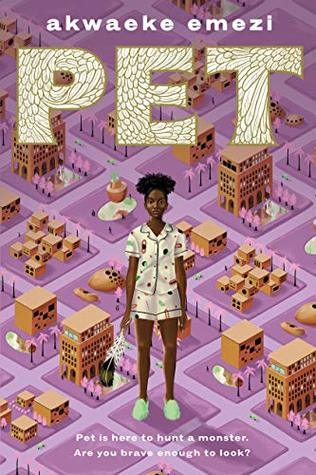
Emezi has managed to write a book that is simultaneously escapism, hopeful promise, and fierce demand to do better. In a future where the people known as ‘angels’ stepped up and fixed the world, everything is now supposed to be perfect. Jam, a young black trans girl who is mostly non-verbal and communicates via Sign, certainly believes that evil has been erased – until an accident summons a strange but beautiful creature called Pet from one of her mother’s paintings. Pet is here because there is a monster hiding somewhere in Jam’s home, but despite her best efforts her otherwise wonderful parents refuse to believe that Pet could be right about there still being monsters – meaning that Jam has to hunt with Pet alone. It’s a fantastical, beautiful, magical book about figuring out how to look past your beliefs and expectations, and that no utopia can exist without vigilance; about believing survivors and victims, and protecting them. I’d also argue it’s a book about not dismissing children and young people, and believing you always know best just because you’re older – as Jam’s parents, however well-intentioned, dismiss her. It’s without question mandatory reading for anyone who cares about social justice and the state of the world – and wants to see how it might look once we figure out how to fix it.
The Imaginary Corpse by Tyler Hayes
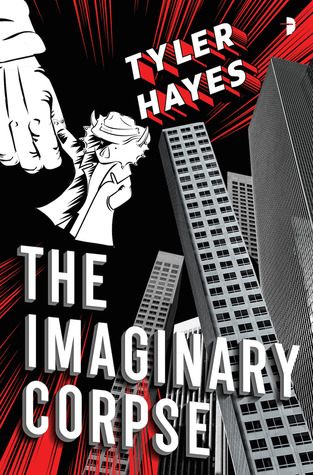
This is the book that inspired this entire list – I knew I needed to write a best of the decade list because I knew Imaginary Corpse needed to be on it. Tippy is a yellow triceretops plushie, and a detective – he’s an inhabitant of the StillReal, the place imaginary friends and fictional characters go when they lose their People, but were loved too hard to just disappear into nothingness. If it sounds like crack, it really isn’t; if it sounds childish, it isn’t that either. When Friends start dying – dying for real, which is supposed to be impossible – Tippy is the only one with a chance of solving the case, but it’s worse than even an imaginary being could ever imagine. Mixing whimsical delight with PTSD and trauma, Imaginary Corpse is as full of wonder as it is an unbelievable murder mystery, pushing the boundaries of the imagination, the genre, and our relationship with fiction in the process. You can read my full review here, but suffice to say, if you skip this one, you are missing out on one hell of a literary treasure.
The Locked Tomb Trilogy by Tamsyn Muir
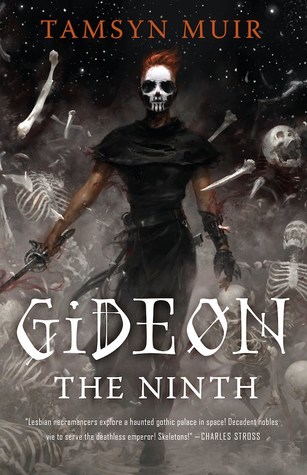
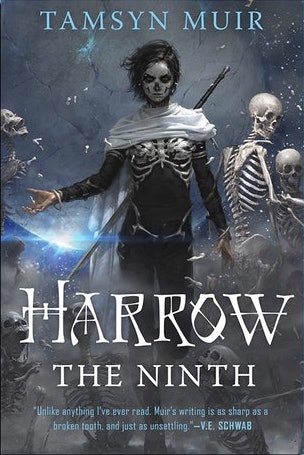
If you’re an English-speaker on planet Earth, you probably heard about Gideon the Ninth being released this Autumn – most likely with the pitch ‘lesbian necromancers in space!’ Which is entirely accurate, and to be honest, all you really need to know. But in fact Muir’s world is a breathtaking masterpiece of Science Fantasy, with intricate, brilliant worldbuilding and a chilling magical system. The snark and sass probably shouldn’t work with the baroque setting and (initially) incomprehensible plot, but they really do – and this is a book with so many layers you really need to read it more than once to properly appreciate it all. Book two is out next year – you’ve got some time to catch up before it’s release, if you’ve missed this one so far!
The Ten Thousand Doors of January by Alix E. Harrow
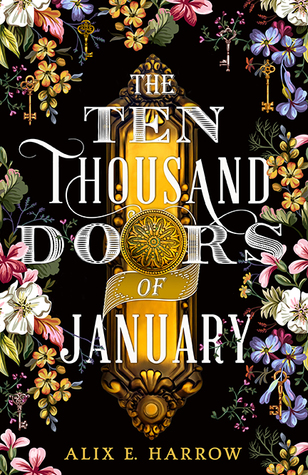
There are a few books in all the world which are completely without flaw. A number of them made it onto this list, and The Ten Thousand Doors of January is another. It’s simply perfect, in every possible way. End of discussion.
Hell’s Library series by A.J. Hackwith
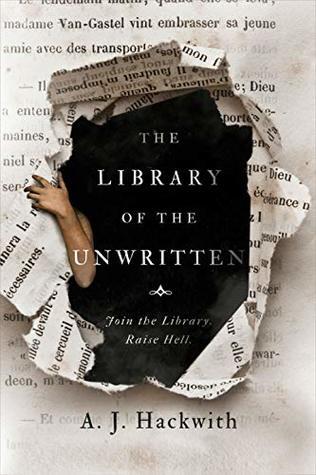
A library in – but not under the rule of – Hell, where all the books never written are shelved. Um, yes??? Hello? I need to hear literally nothing else. But in fact Hackwith goes beyond a fantastic premise to deliver a brilliant story, full of complicated characters and deliciously interpreted mythology. It starts with a Hero slipping out of his book and running away to Earth to meet his author, and the stakes rapidly rise to the threat of war between Heaven and Hell. I appreciated that Heaven and Hell are far from the only afterlives/other realms in this universe, and also the casually queer characters amongst the cast, and honestly, you really can’t skip out on this one. If you love books, if you love reading, if you have a book waiting on the shelves of the Unwritten Wing, then you need to read this one.
Escaping Exodus by Nicky Drayden
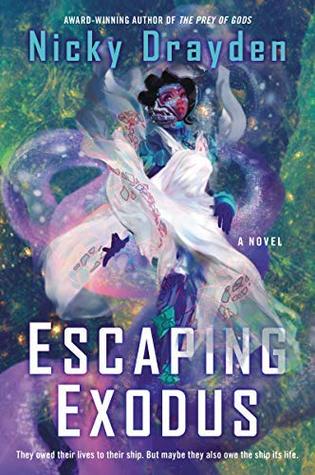
Drayden exploded onto the scene with The Prey of Gods a few years ago, but Escaping Exodus is, in my super biased opinion, the standout of her works (so far). A civilisation living inside giant space beasts; a matriarchal civilisation, where queerness and polyamory is the standard relationship format instead of anything eyebrow-raising. Seske is something like a princess, heir to the throne and at ease with her people’s way of life; men coddled and sheltered (and kept from power), her entire society uprooting every time their space beast starts to die for a new exodus. The problem? Well, there’s several; she’s in love with a beastworker, a cross-caste relationship that can’t be borne; their space beast is dying early; and the truth is, Seske’s not exactly a very good princess. When her eyes are opened to the reality of what the space beasts are and to the sweeping injustices embedded in her society, she can’t close them again. The premise and worldbuilding are incredible, and the web connecting the different characters with their disparate motivations is just wonderful. It’s bizarre in the very best of ways!
Unnatural Magic by C.M Waggoner
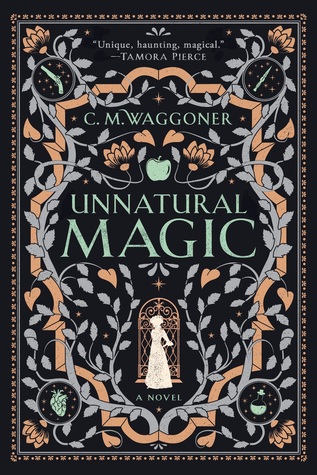
I called this the ‘trolls not gender roles’ book a while back, and it proved to be even more delightful than I could possibly have expected. Waggoner has crafted an incredible world, populated by characters that leave you unable to stop grinning, subverting traditional fantasy and romance tropes and building magic out of Math (or something awfully like Math). This is an incredibly fun book, but it’s also brilliantly clever, very much standing head-and-shoulders above others of its kind. It’s impossible to put down, and impossible not to fall in love with each and every one of the protagonists; Waggoner had me laughing one moment and my heart in my throat the next, with a writing style that feels like the spiritual successor of Jonathan Strange and Mr Norrell. I’m not sure it’s possible to not enjoy this one.
Honorary Mentions
After some internal wrestling, I decided to include only series that began in or after 2010 for this list. However, there are some extra-special ones that started a bit earlier, but continued into this decade, and still deserve a warm and special mention!
Temeraire series by Naomi Novik
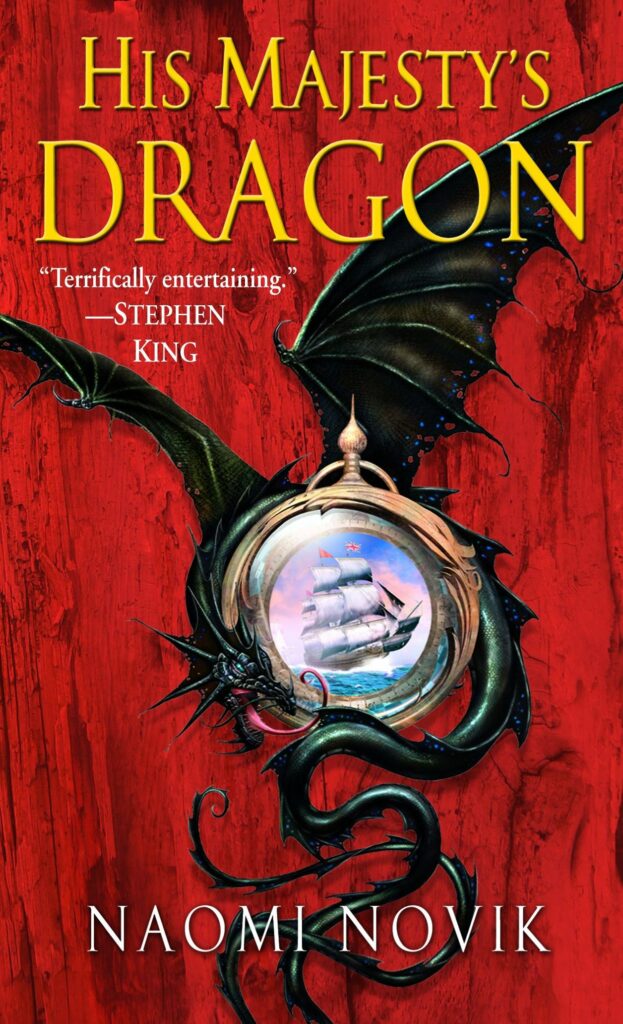

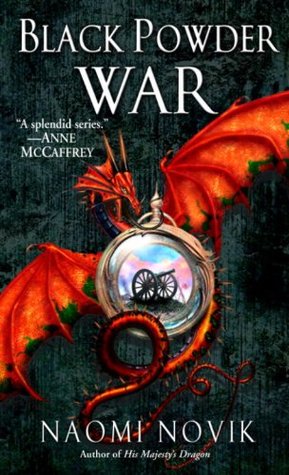
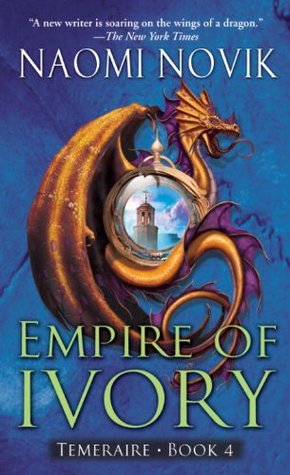
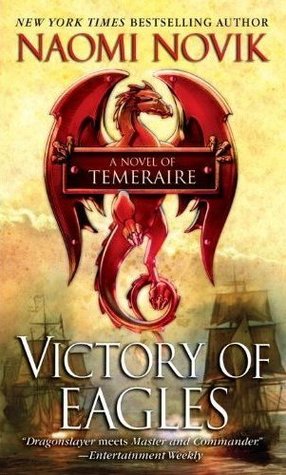
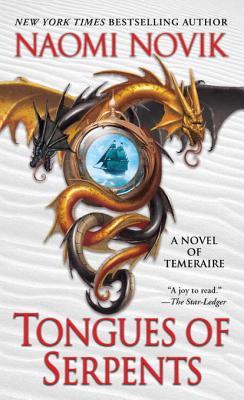

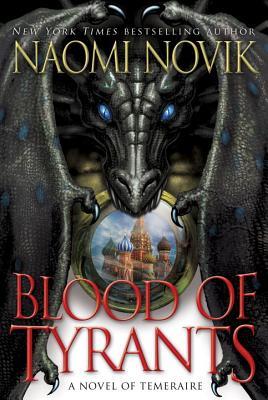
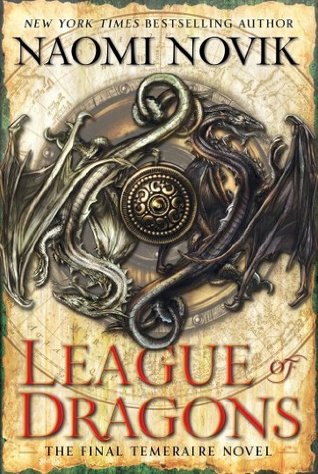
It got a little rocky towards the end, but the Temeraire series closed with an absolutely flawless finale and I still consider this series the defining dragon-rider books of the decade. In a Napoleonic world where sentient, speaking dragons bond (non-psychically) with their captains and crews to form the air forces of their respective countries, Temeraire and his captain Laurence are especial oddities – the former a kind of dragon no one in the British Empire seems able to identify, and Laurence a Navy man who should never have been anywhere near a dragon hatchling. But their relationship will rock the world, from one edge of the map to the other. The characters in this one are beyond incredible, and I’m in sheer awe of the worldbuilding – particularly after book one, when we see how dragons and humans interact in other parts of the world than just Western Europe. Although there’s not magic as such, it’s without question a magical series that nobody should miss.
Matthew Swift series by Kate Griffin
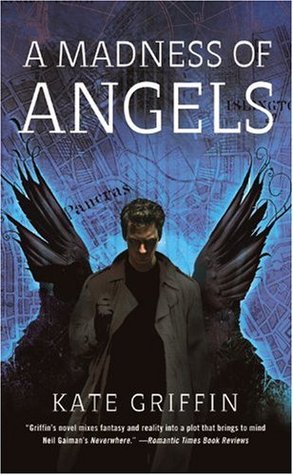
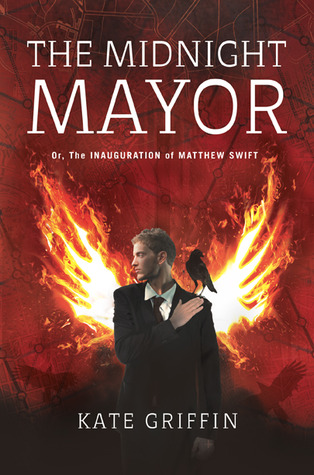
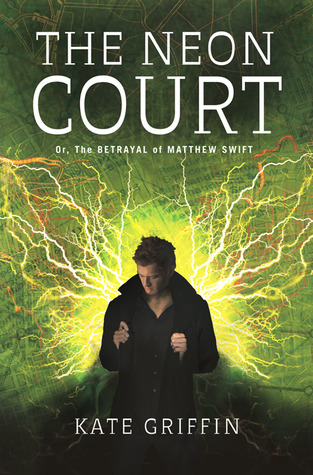
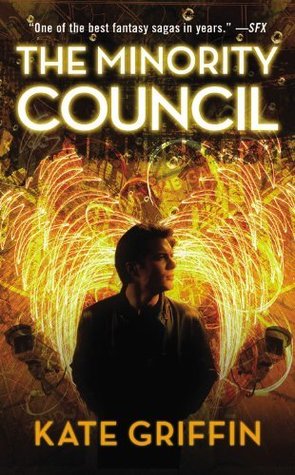
This is the definitive urban fantasy series, without question or reservation. Here sorcerers use travel cards to craft spells of protection and prophets see the future in the flight of pigeons and plastic bags; the Last Bus will take you anywhere you’re brave enough to go; and the static on the phone line? Well, that’s the Blue Electric Angels, and they have something to say. Never has the concept of magic made urban been expressed or embodied so perfectly; this is a series that proves there’s magic everywhere there is life, that there’s just as much awe and wonder and majesty in the sigils shaped by traffic circles as there is in elven palaces. There is nothing else out there like these books, and they really, really need more acclaim than they’ve gotten.
The Chathrand Voyage by Robert V. S. Redick
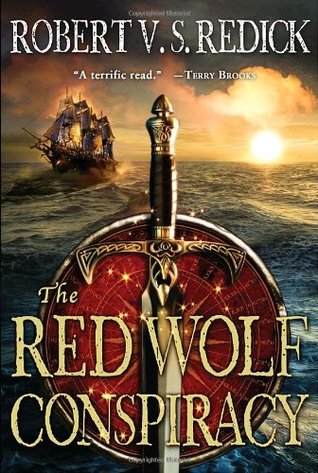

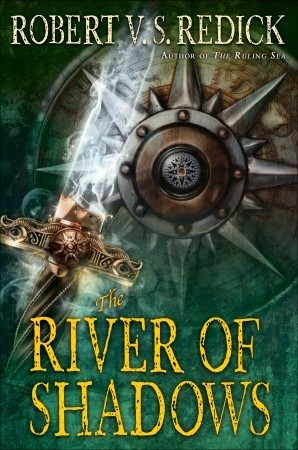
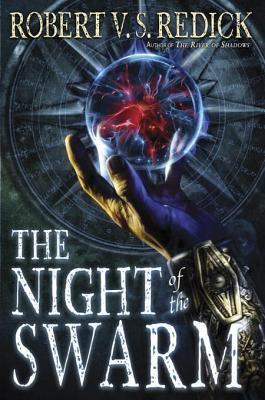
Yet another series like no other out there, the Chathrand Voyage chronicles the final voyage of the eponymous Chathrand – a ship bigger than cities, with hidden worlds and magics inside it. A collection of unbelievable maybe-heroes must work together to prevent a power-hungry mage from seizing ultimate power while simultaneously stopping more mundane enemies from engineering a cataclysmic war. The world Redick has created is incredible, detailed and different, a place where almost-mermaids have their hearts in conch shells, speech and sentience is striking wild animals at random but with increasing occurrence, and languages can be learned in instants – if you’re willing to brush madness to do it. (Or even if you’re not.) Epic in scope and flawless in execution, this is a masterpiece of fantasy, and there was just no way I could write this list without mentioning it – even if it did start in 2008, not 2010.
Naamah Trilogy by Jacqueline Carey


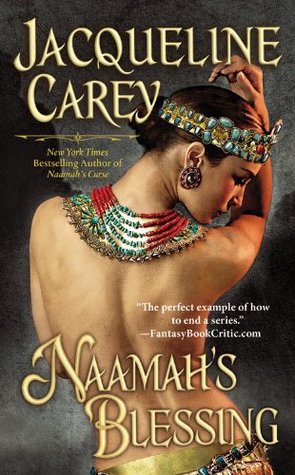
Just overlapping the start of the decade, the Naamah trilogy – also known as Moirin’s trilogy – is set in the same world as Carey’s Kushiel Sequence, but a century later and with new characters. Moirin is one of the wild children of Alba – but she’s also half D’Angeline, a distant relative of royalty. It’s a connection that holds no interest for her, until the gods of Terre d’Ange strike a bargain with those of Alba, crafting a destiny for Moirin that will take her all over the world. Like the previous trilogies set in this world, Moirin’s series explores all the different forms of love, sexuality, and queerness while telling a beautiful and incredible story, with dragons, magical gems, and the secret language of ants all playing a vital role in Moirin’s great destiny. It’s a more than worthy successor to the earlier trilogies and the entire nine book saga is one that should not be missed!
And that’s it!
What books would have made your best-of-the-decade list that I didn’t include here? Let me know in the comments! And let’s raise a glass to all the amazing stories coming our way in the next ten years.
I can’t wait to read them. Can you?
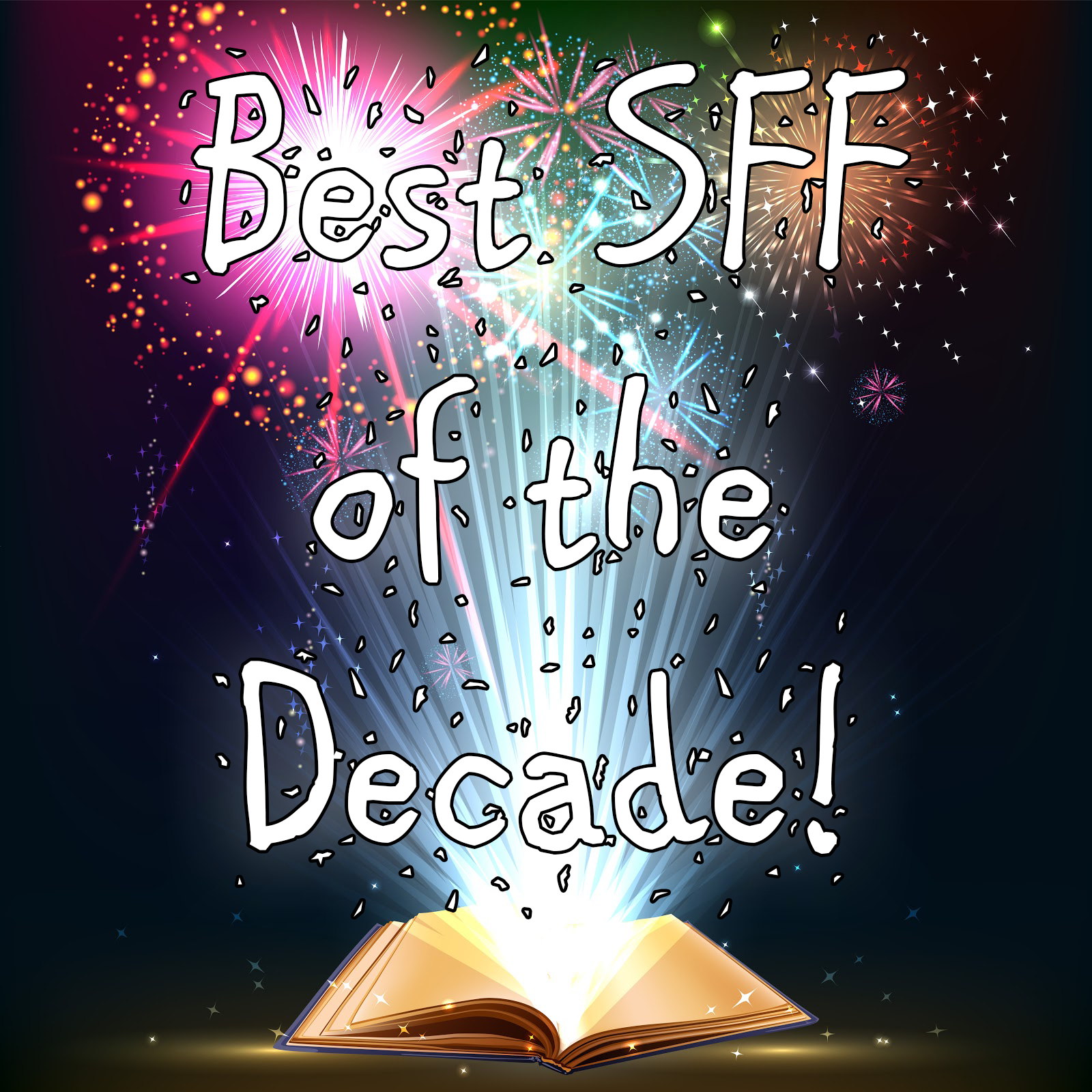
There are so many *fantastic* books in this post! My TBR just overflowed a bit on the ones I haven’t read yet. ^_^
Wow, and I thought my best of the decade post was long! This is an amazing and slightly overwhelming list. I’m thrilled to see Sea Change on here, which I loved, and I’m not sure how it missed making my list😁
Such a great list – many favourites, and many new-to-me to find/savour! Thank you for sharing, much obliged.